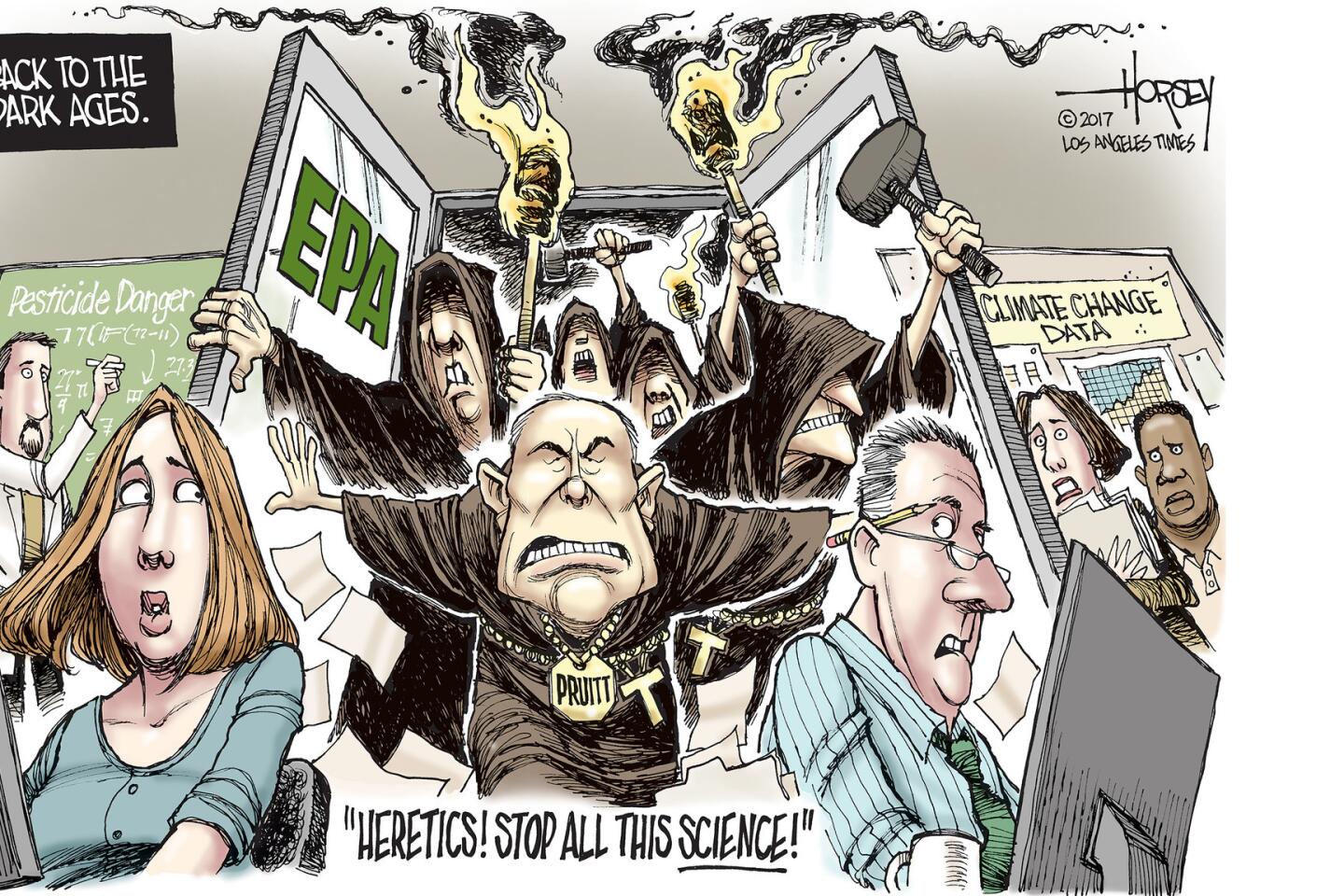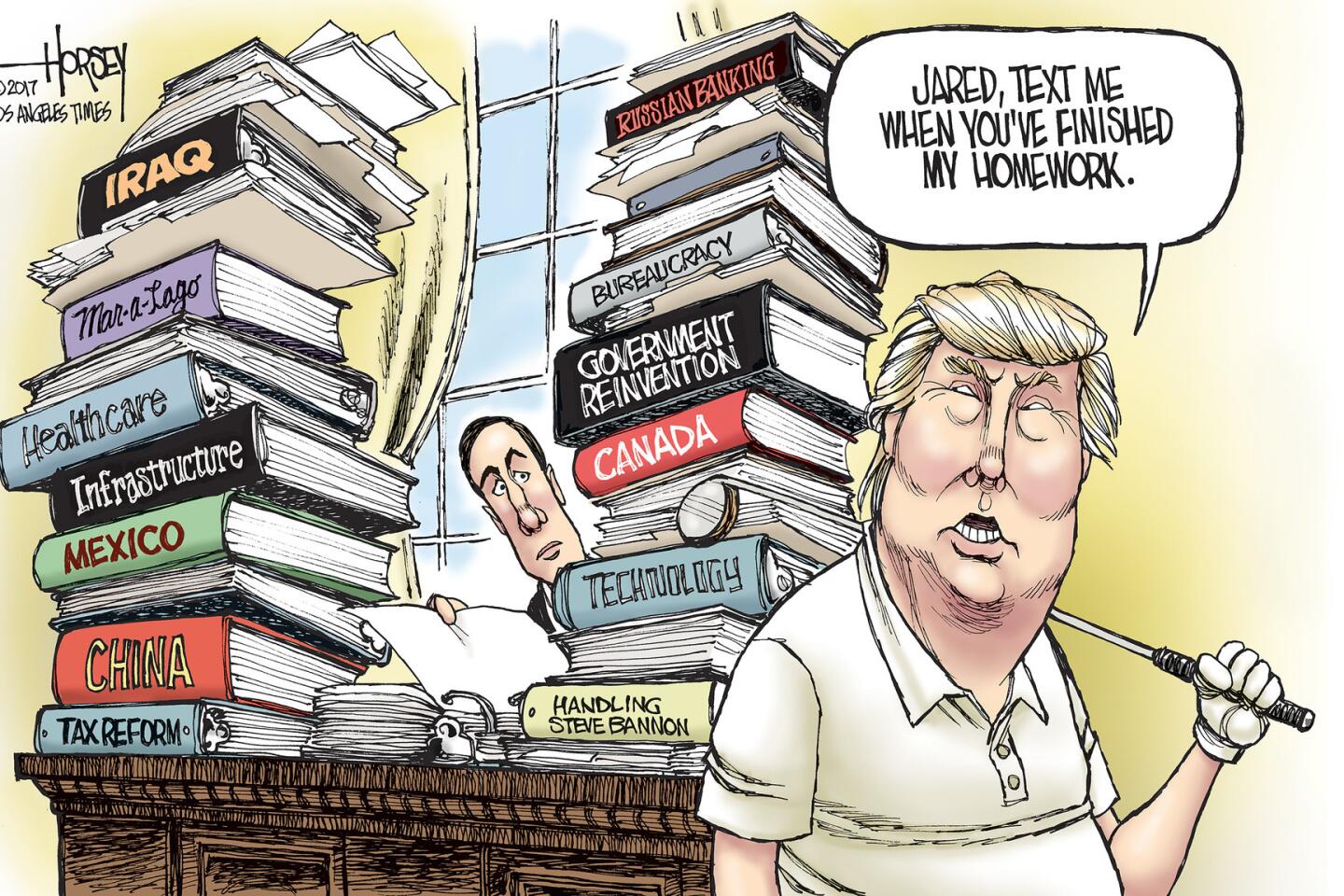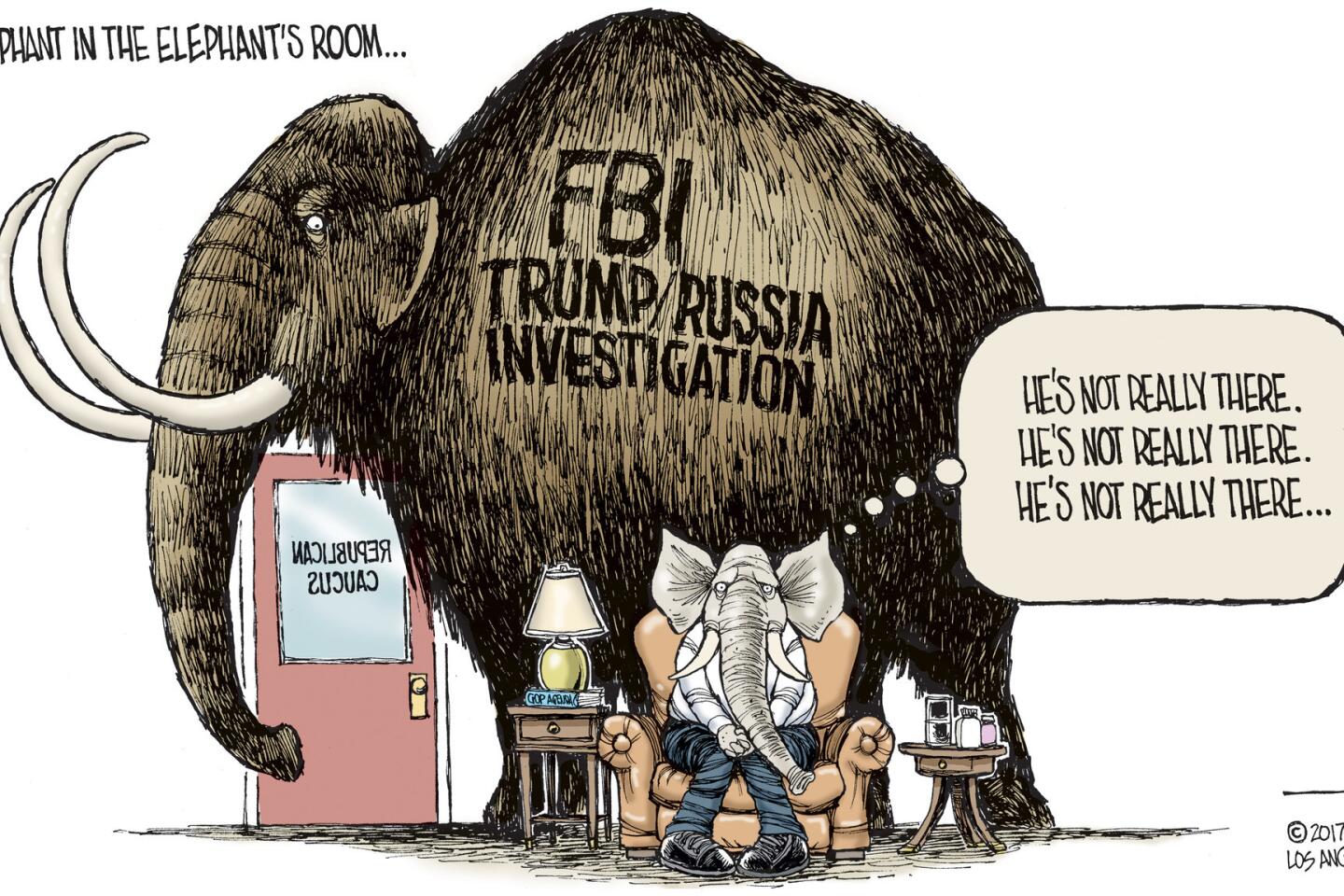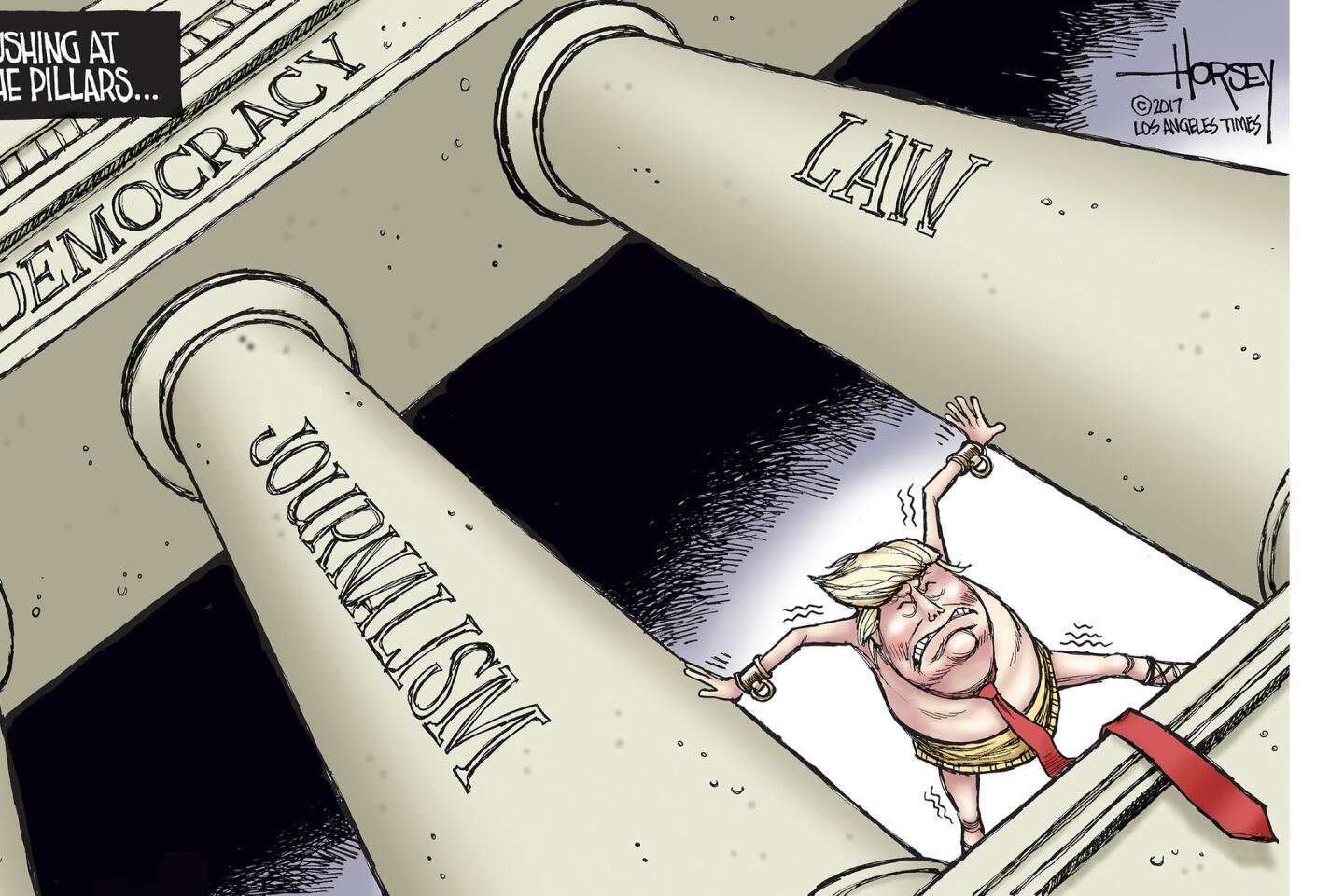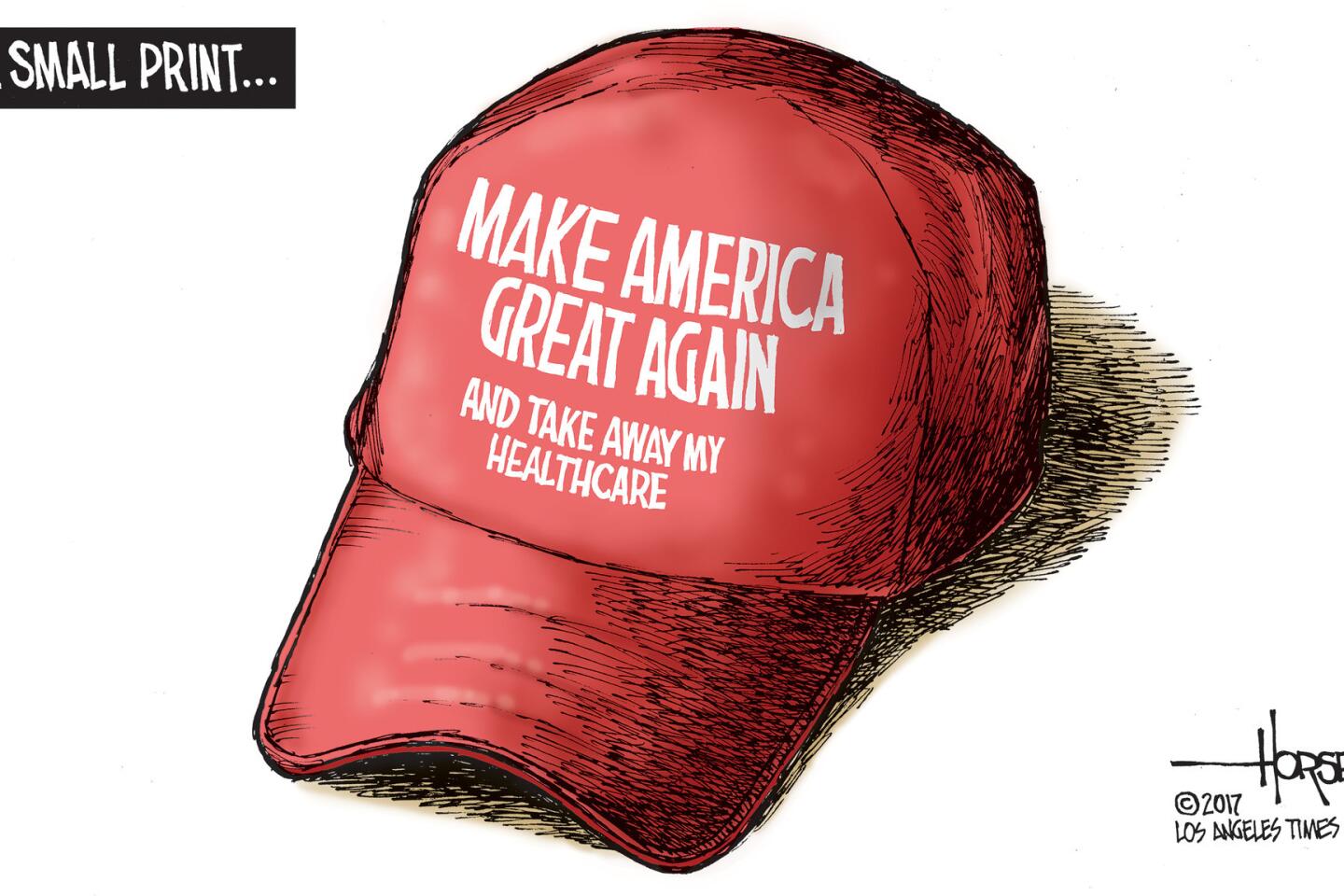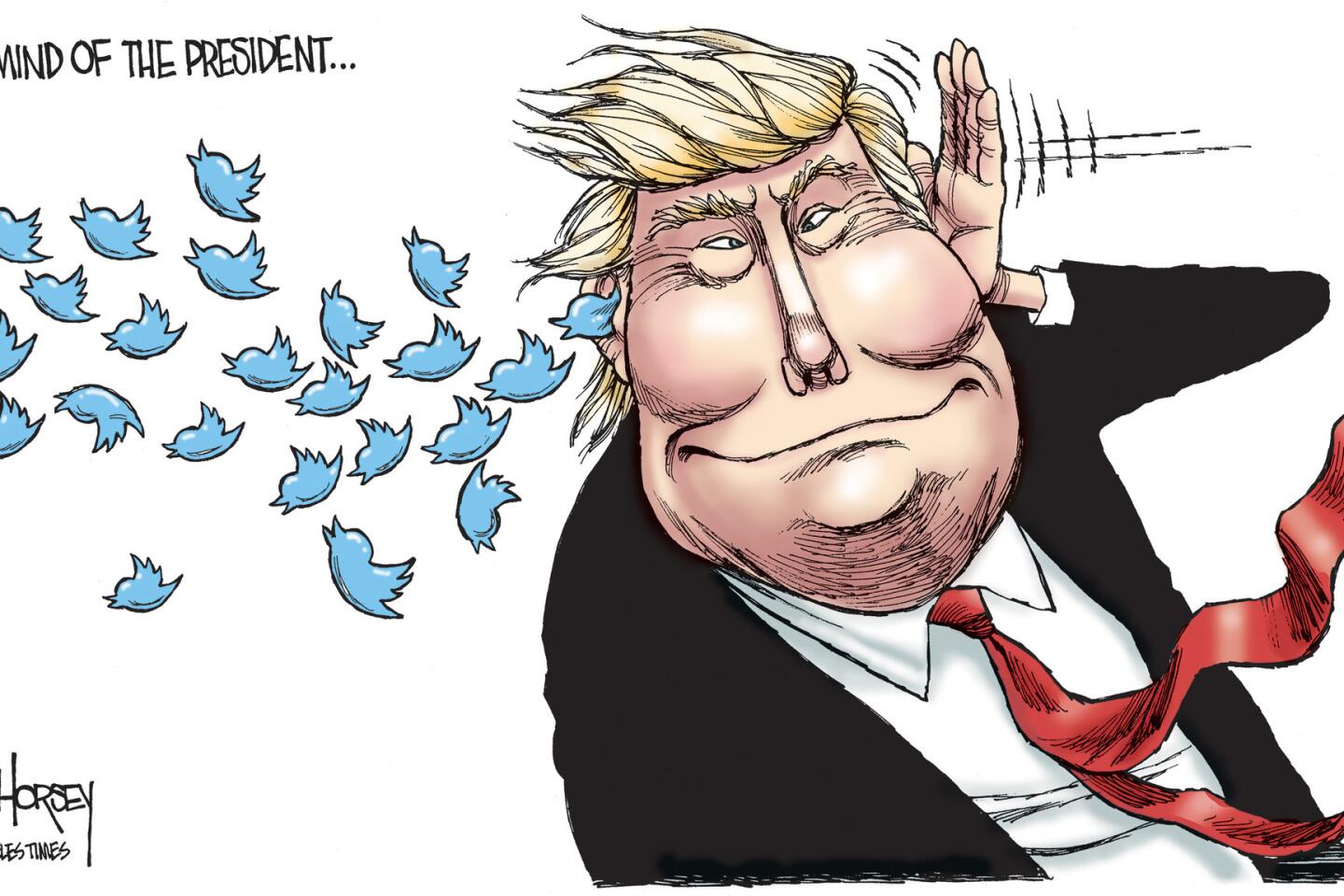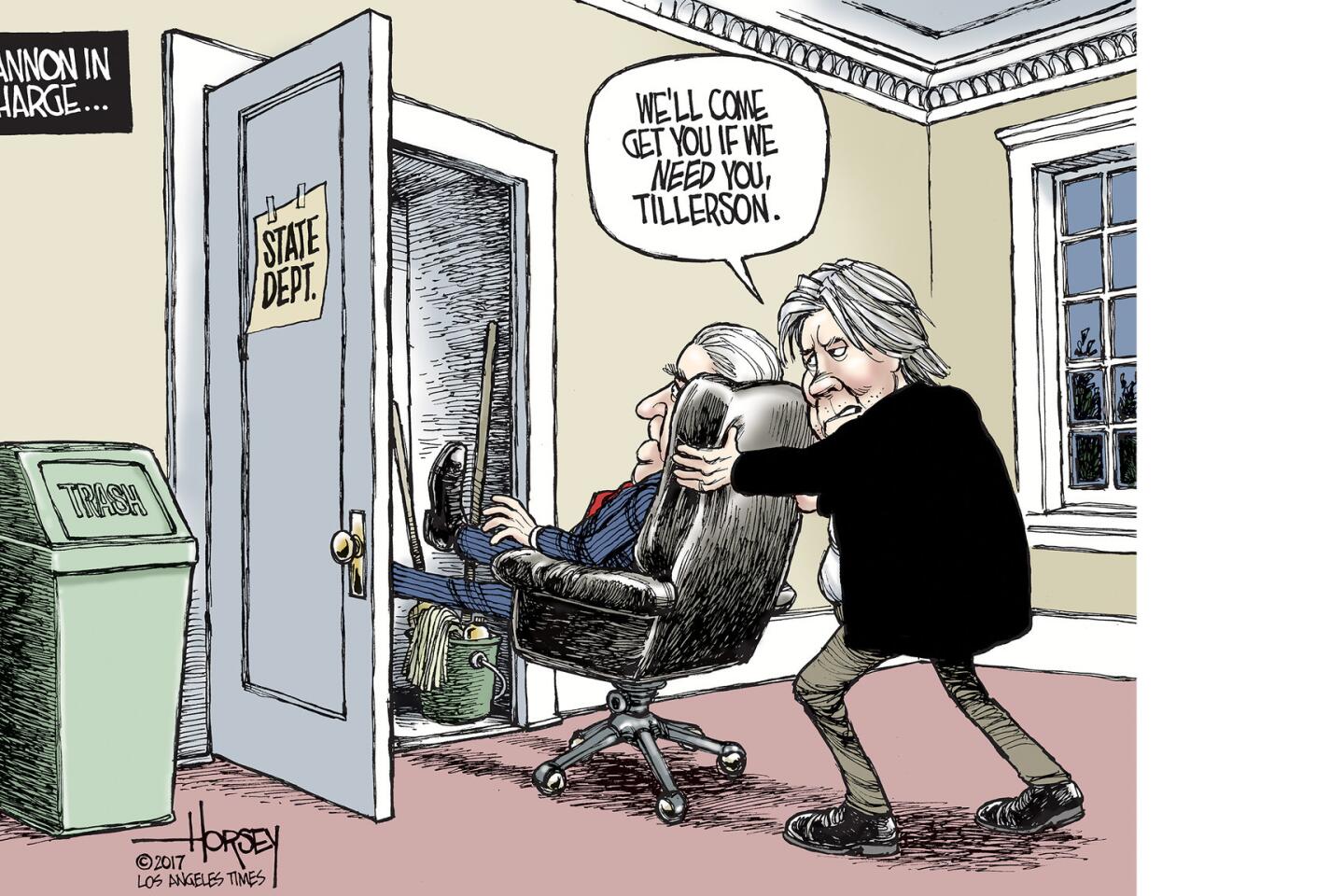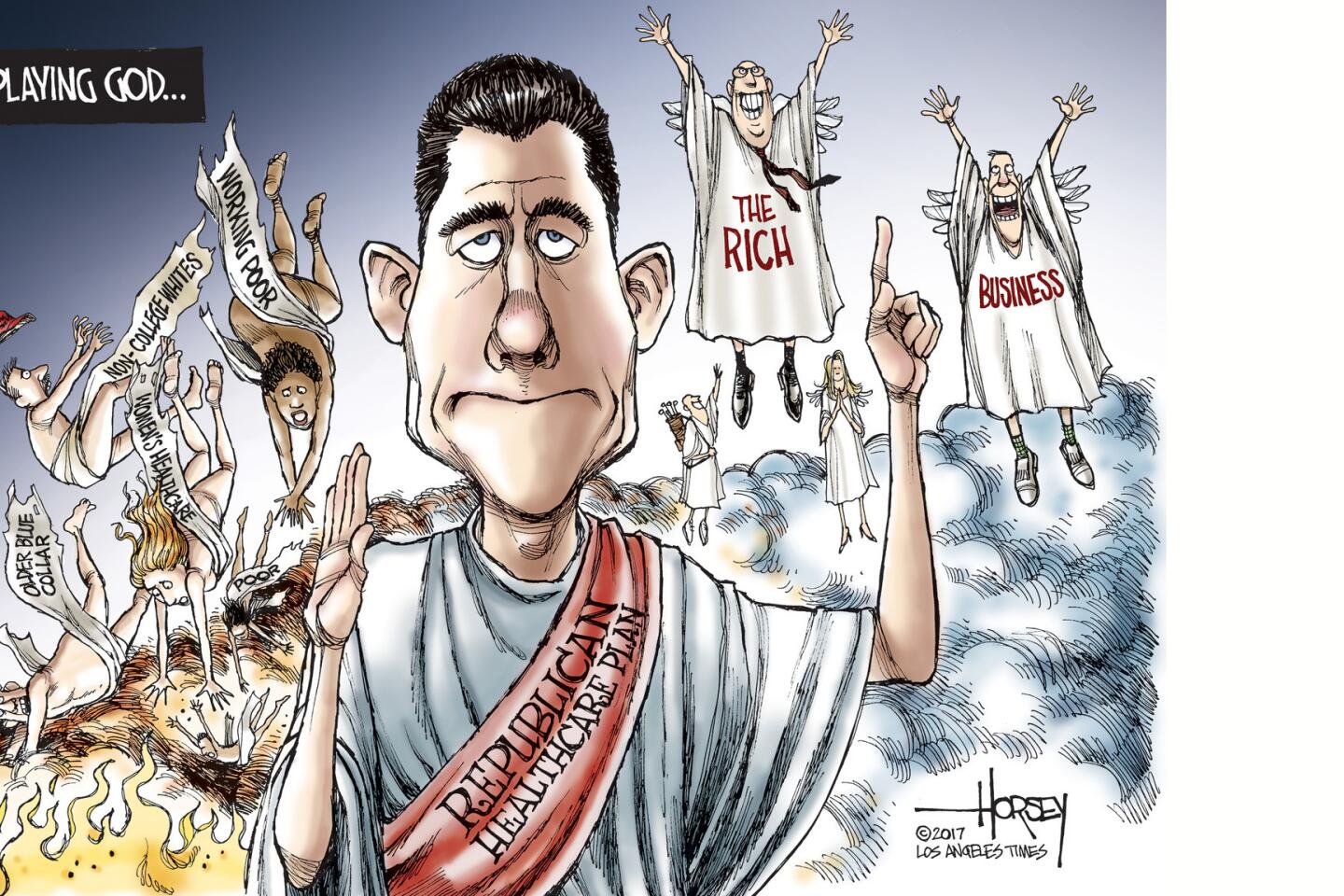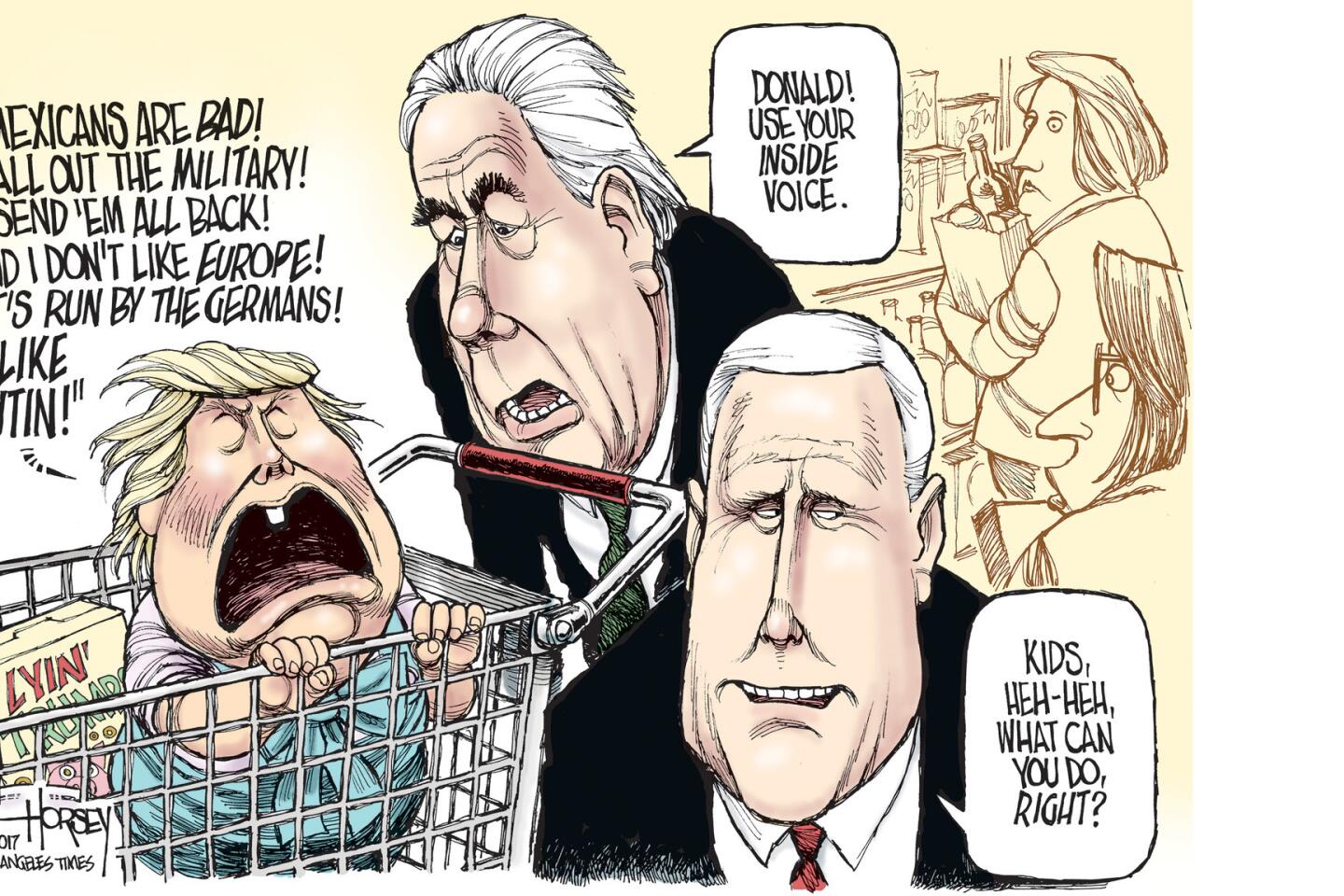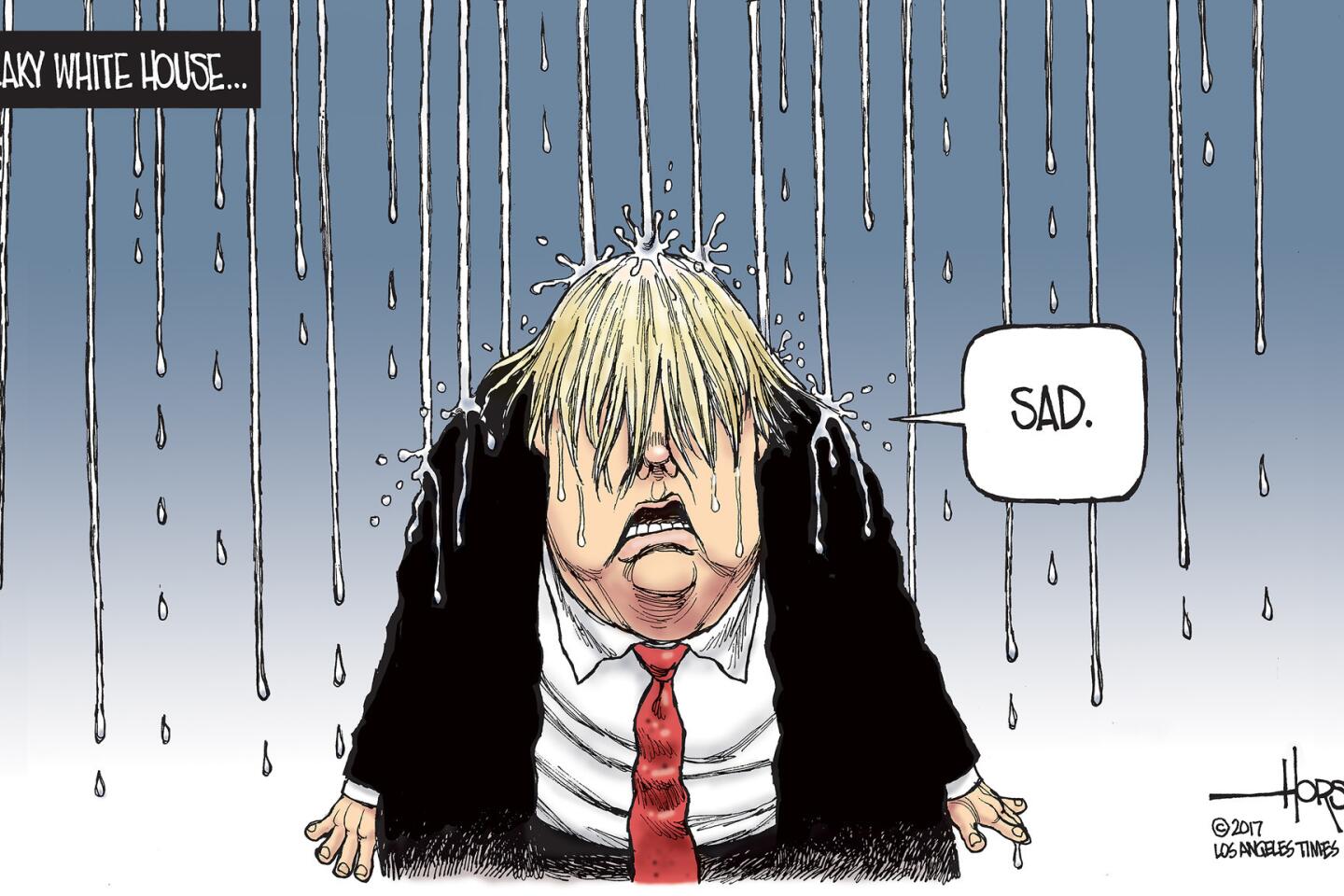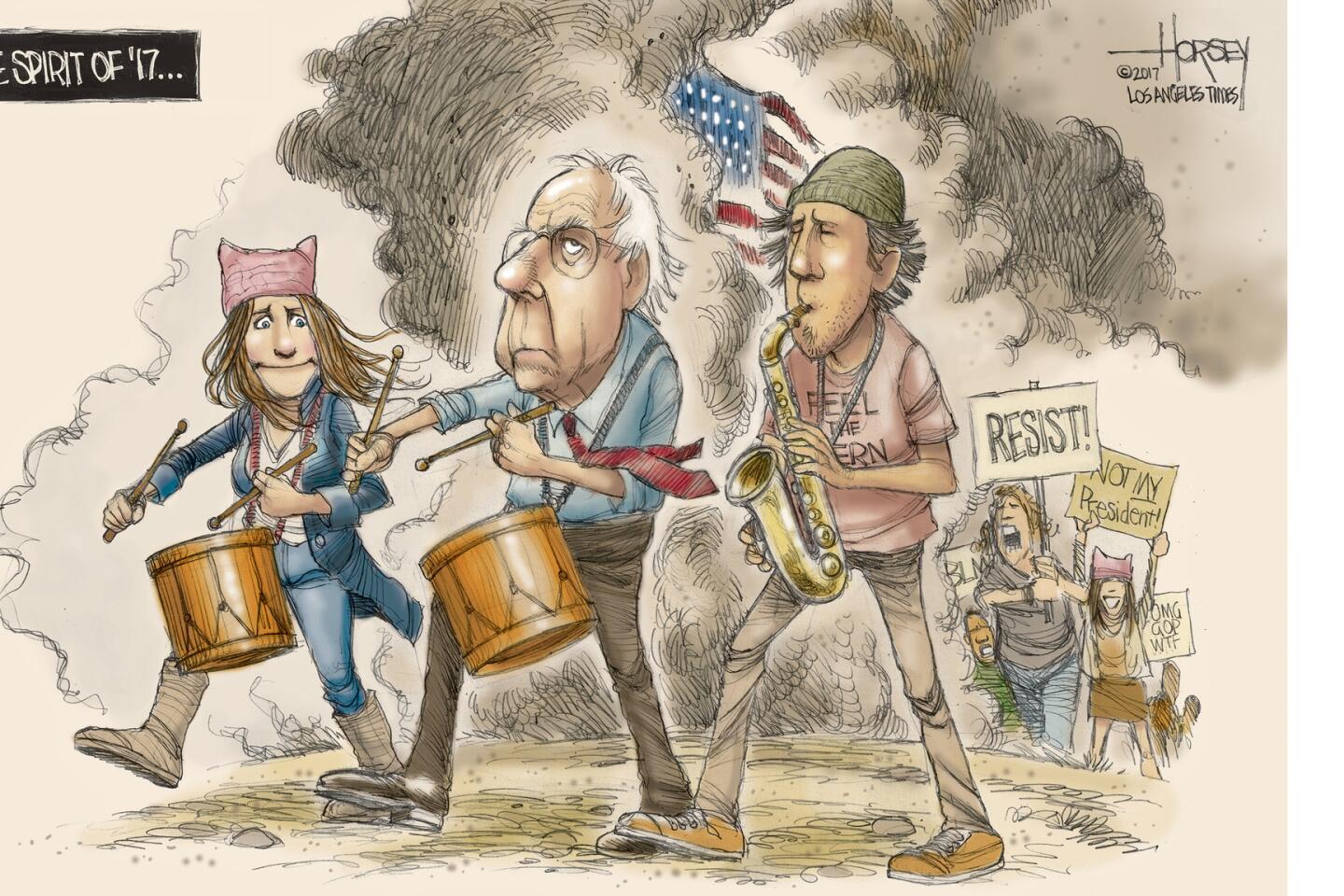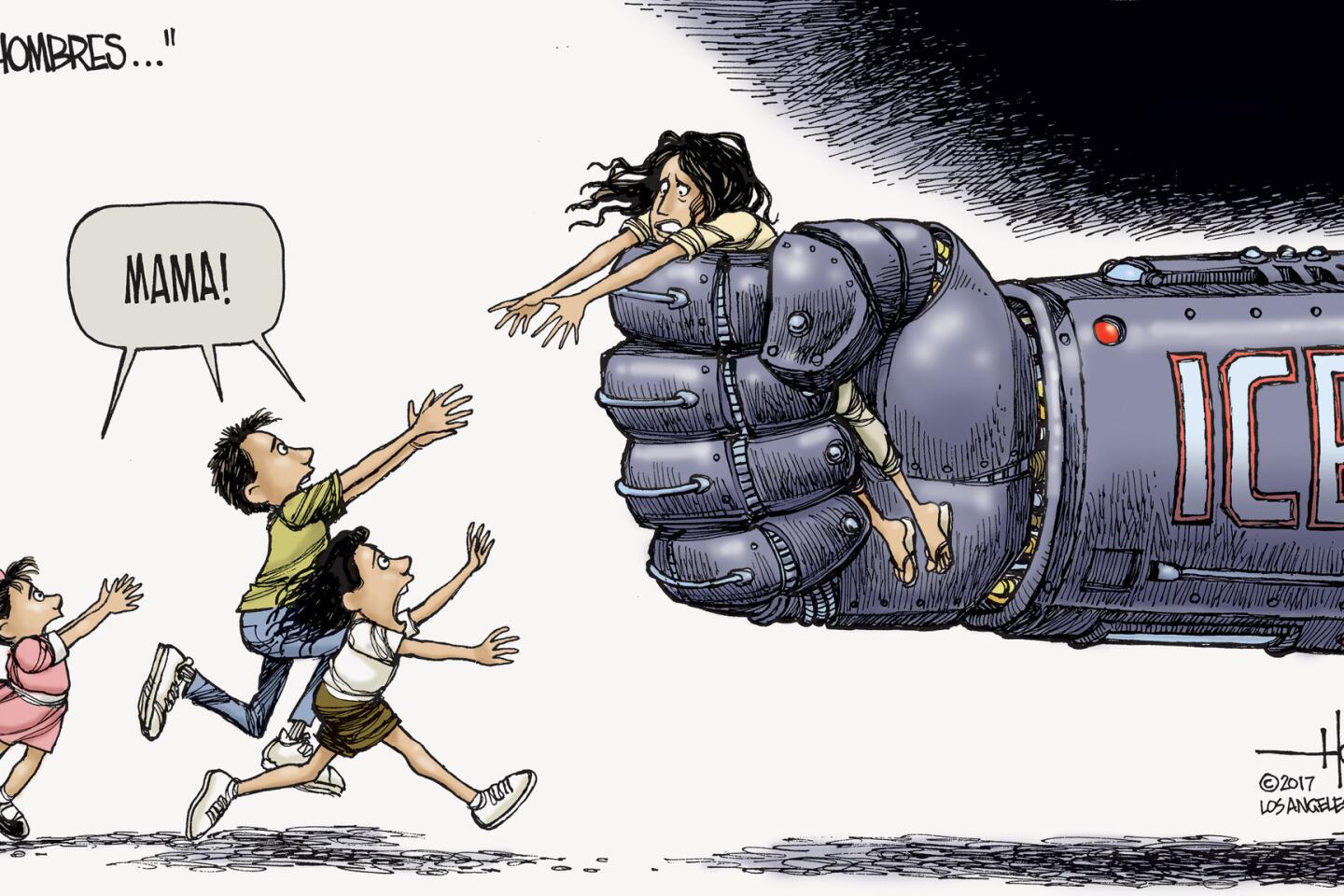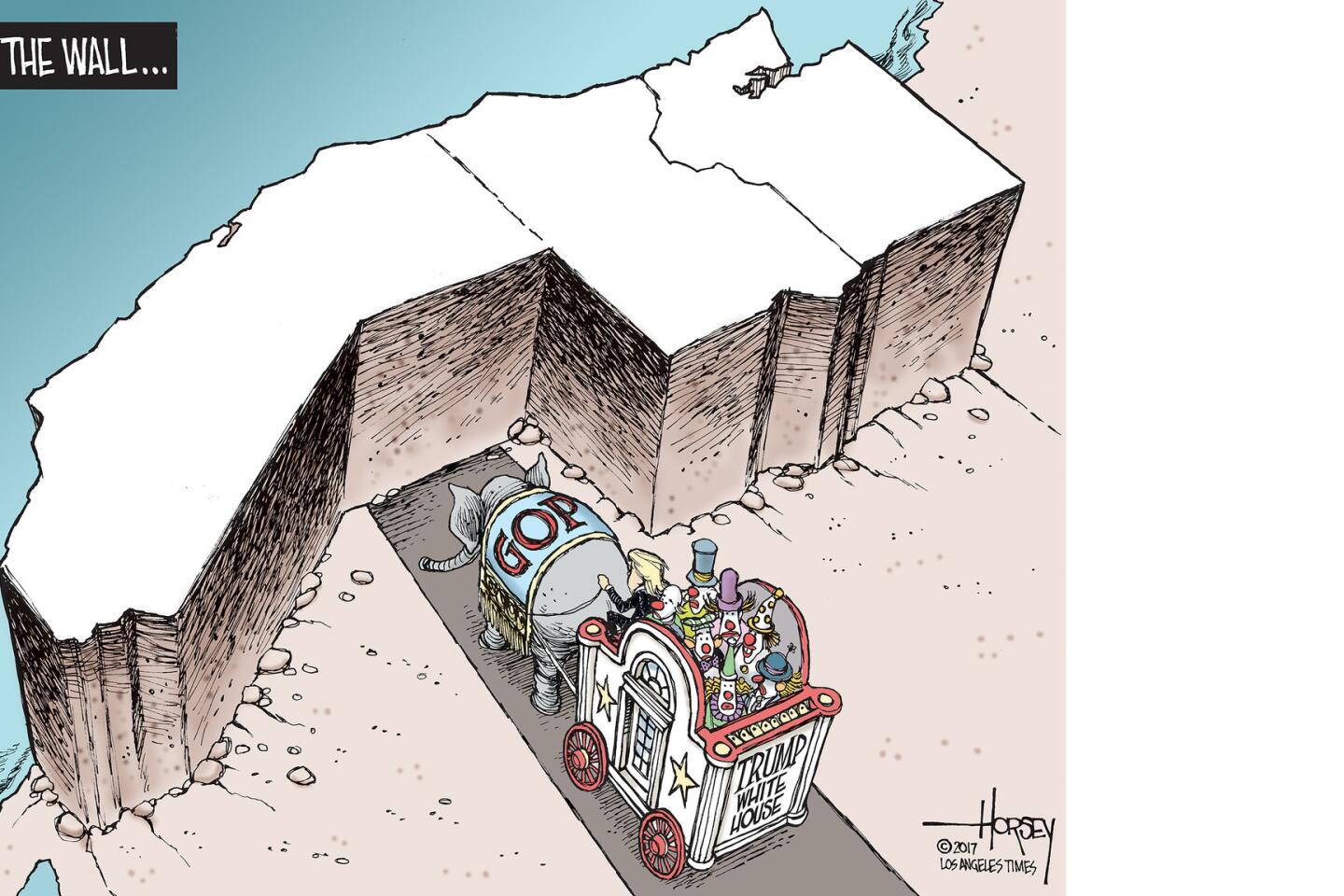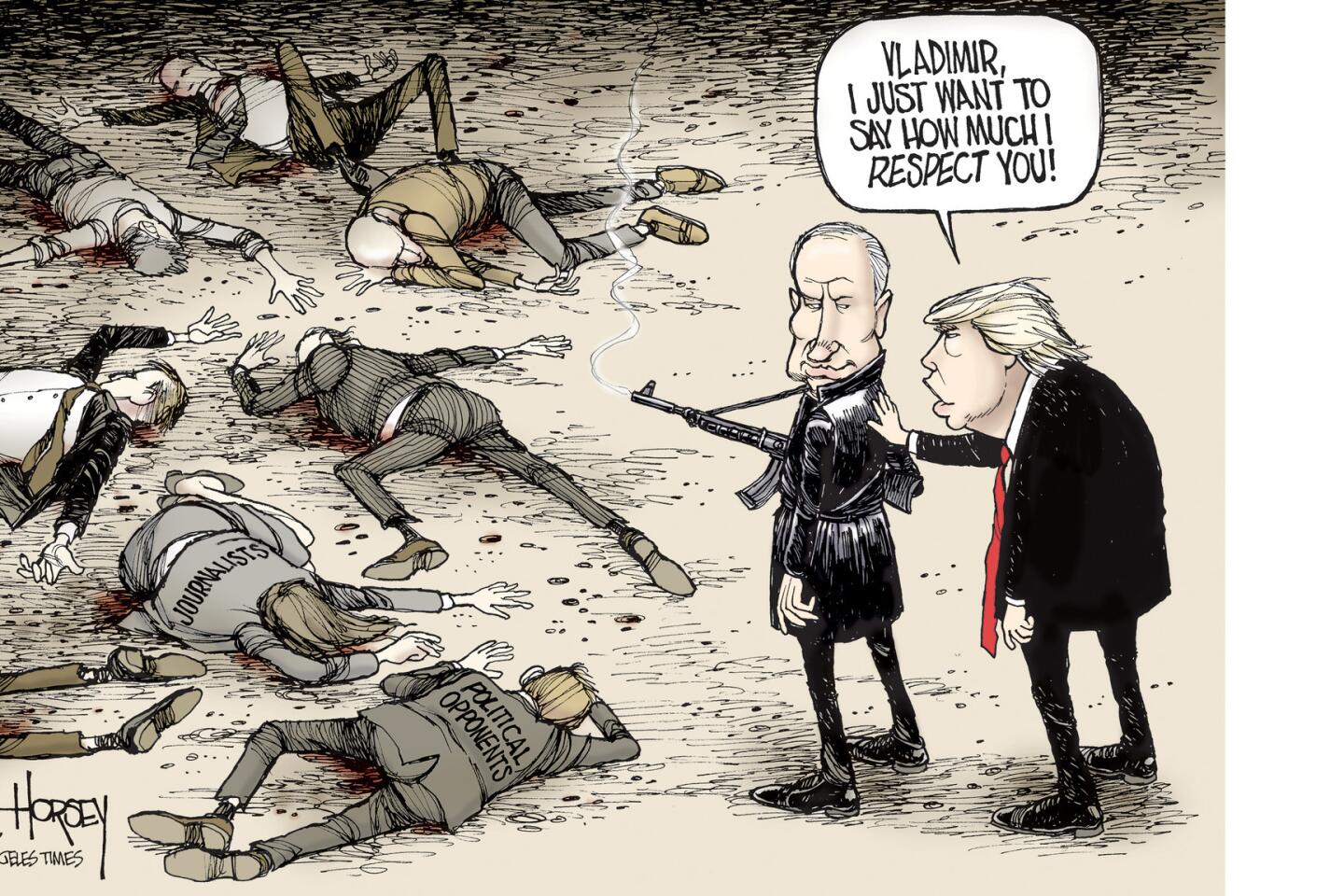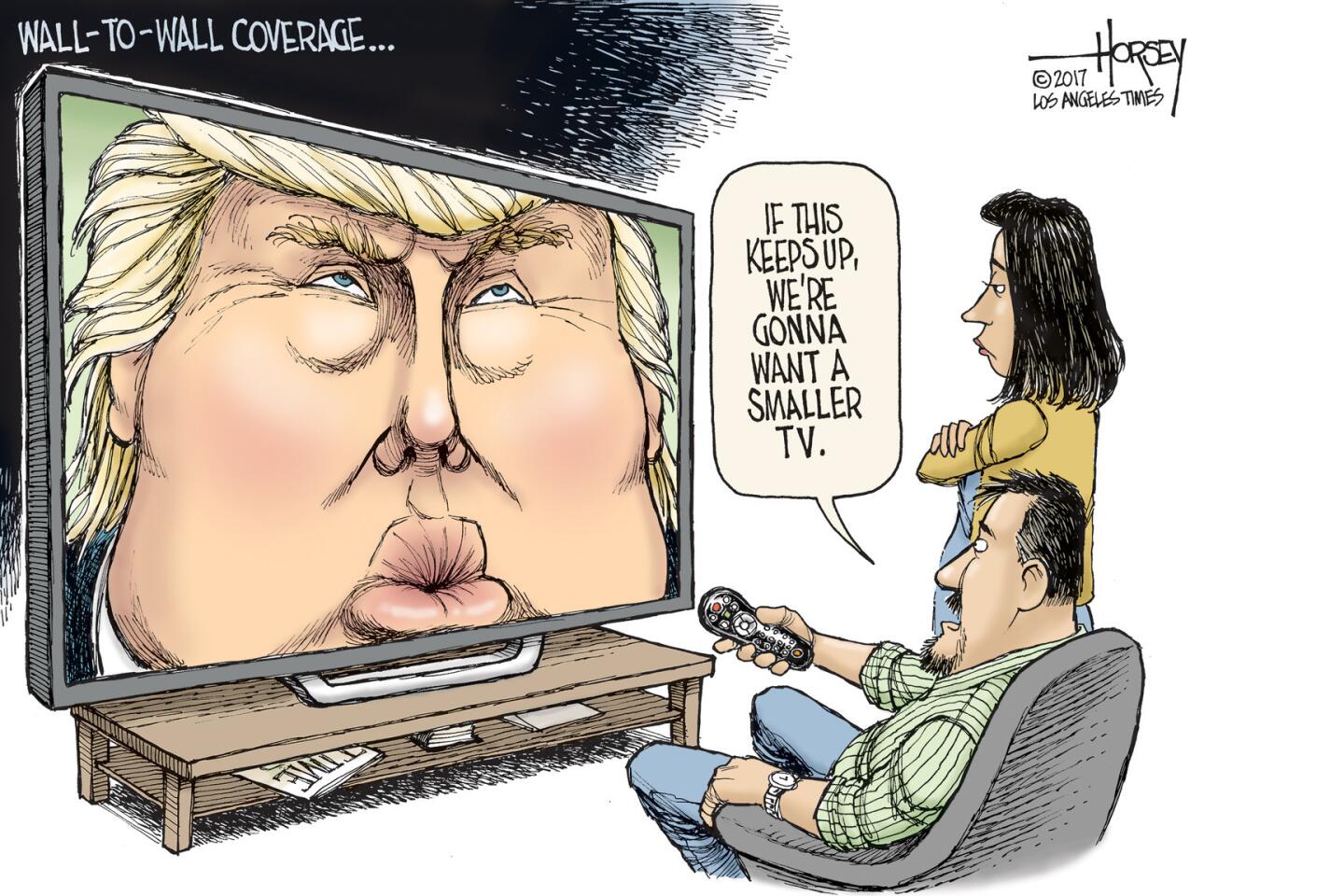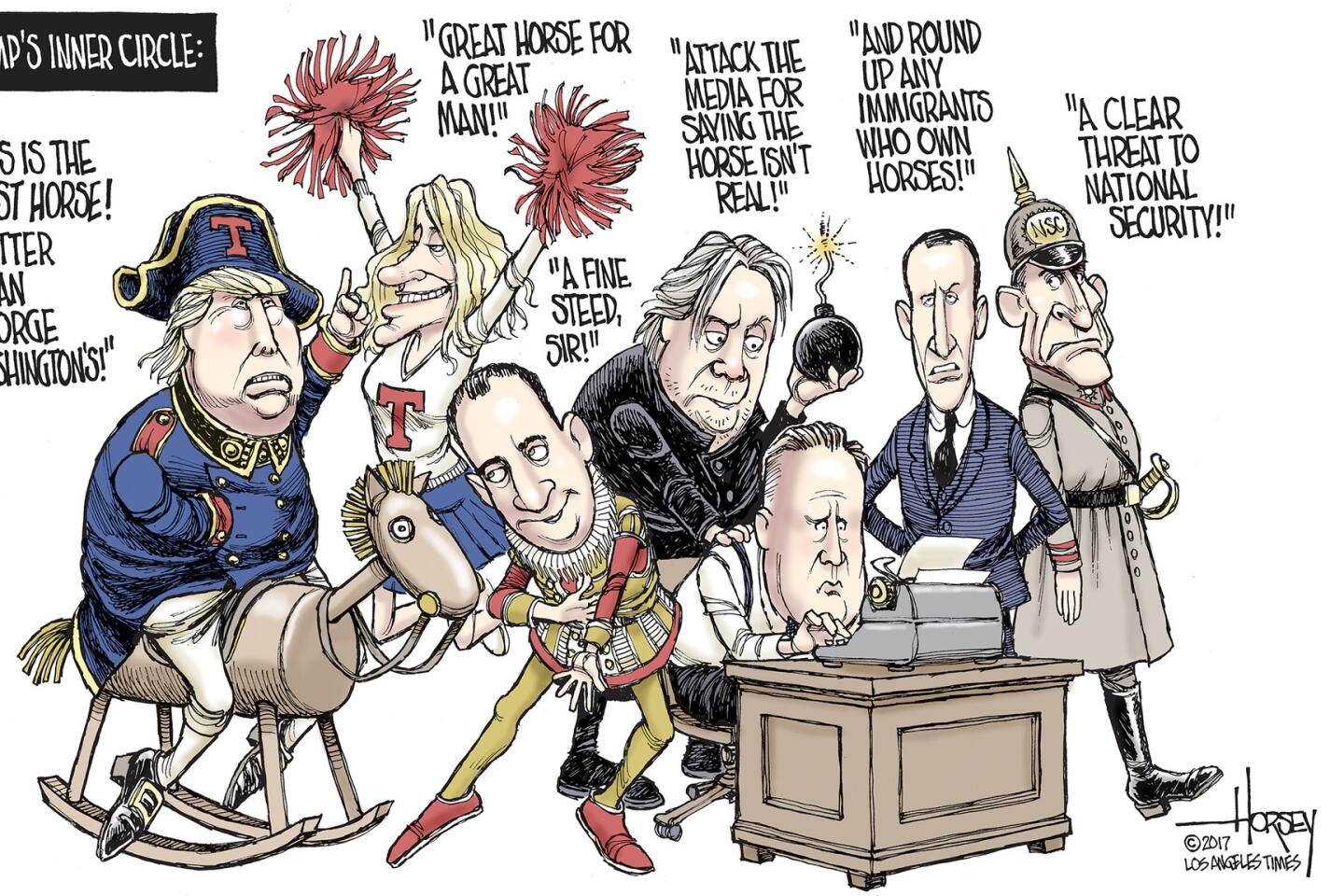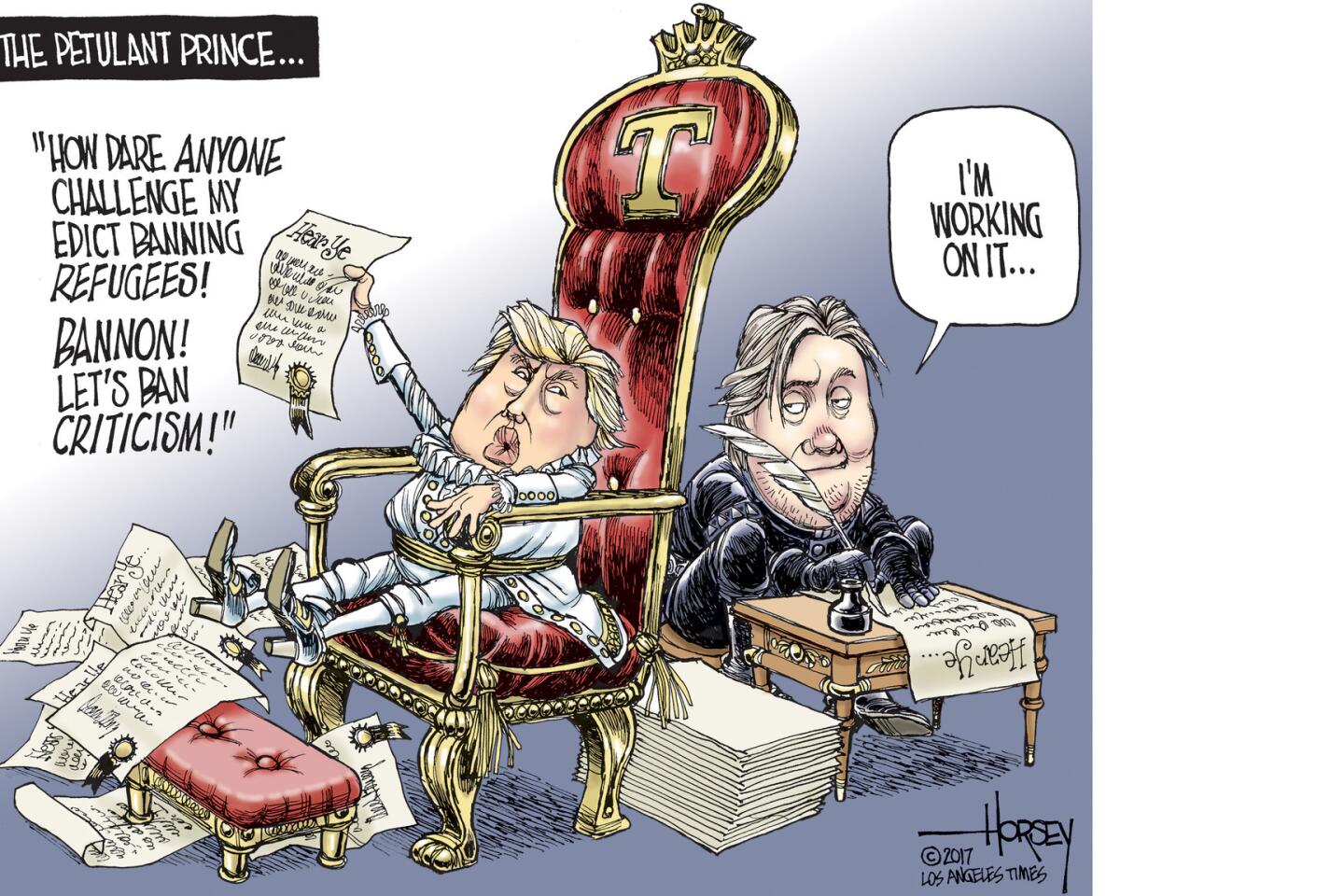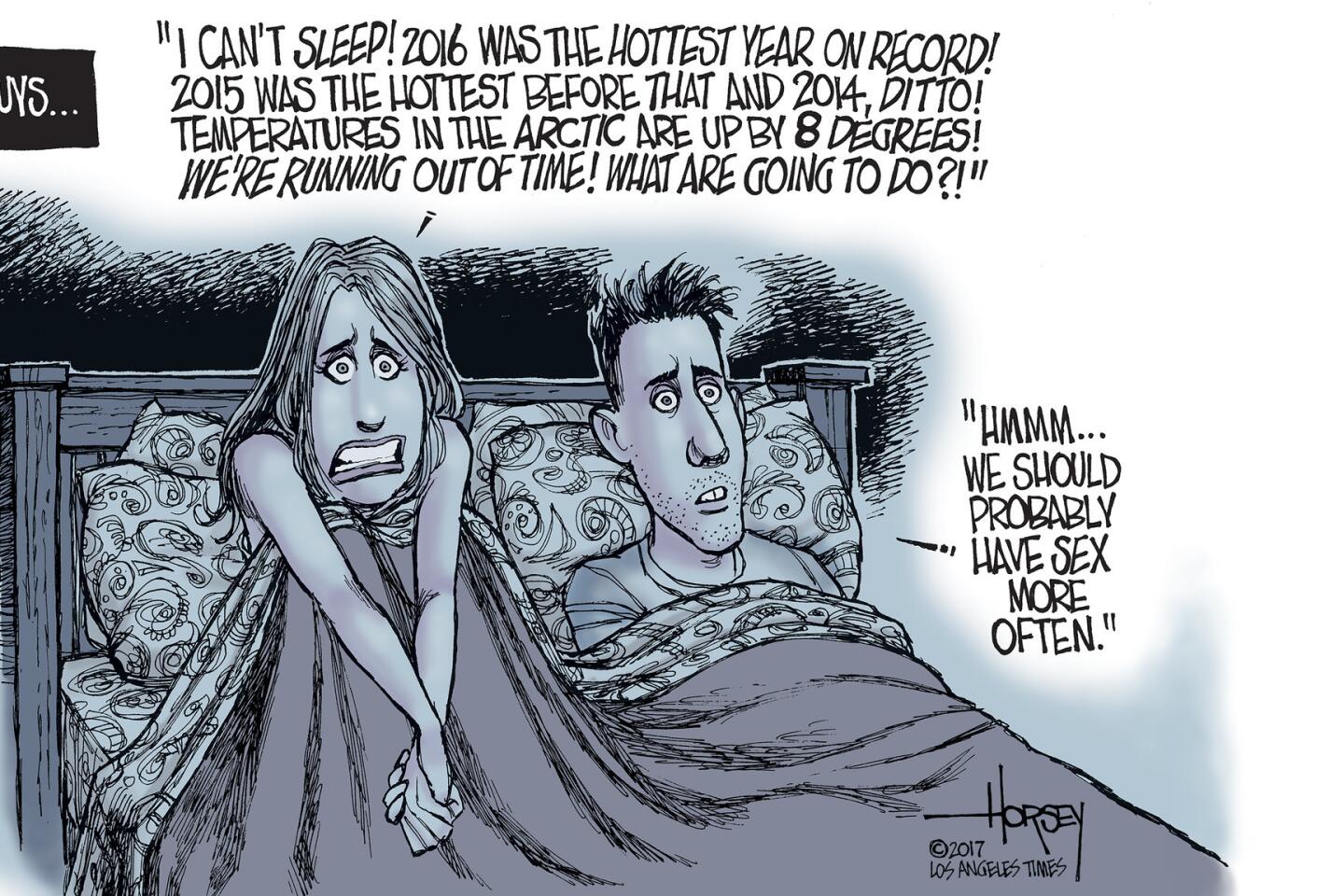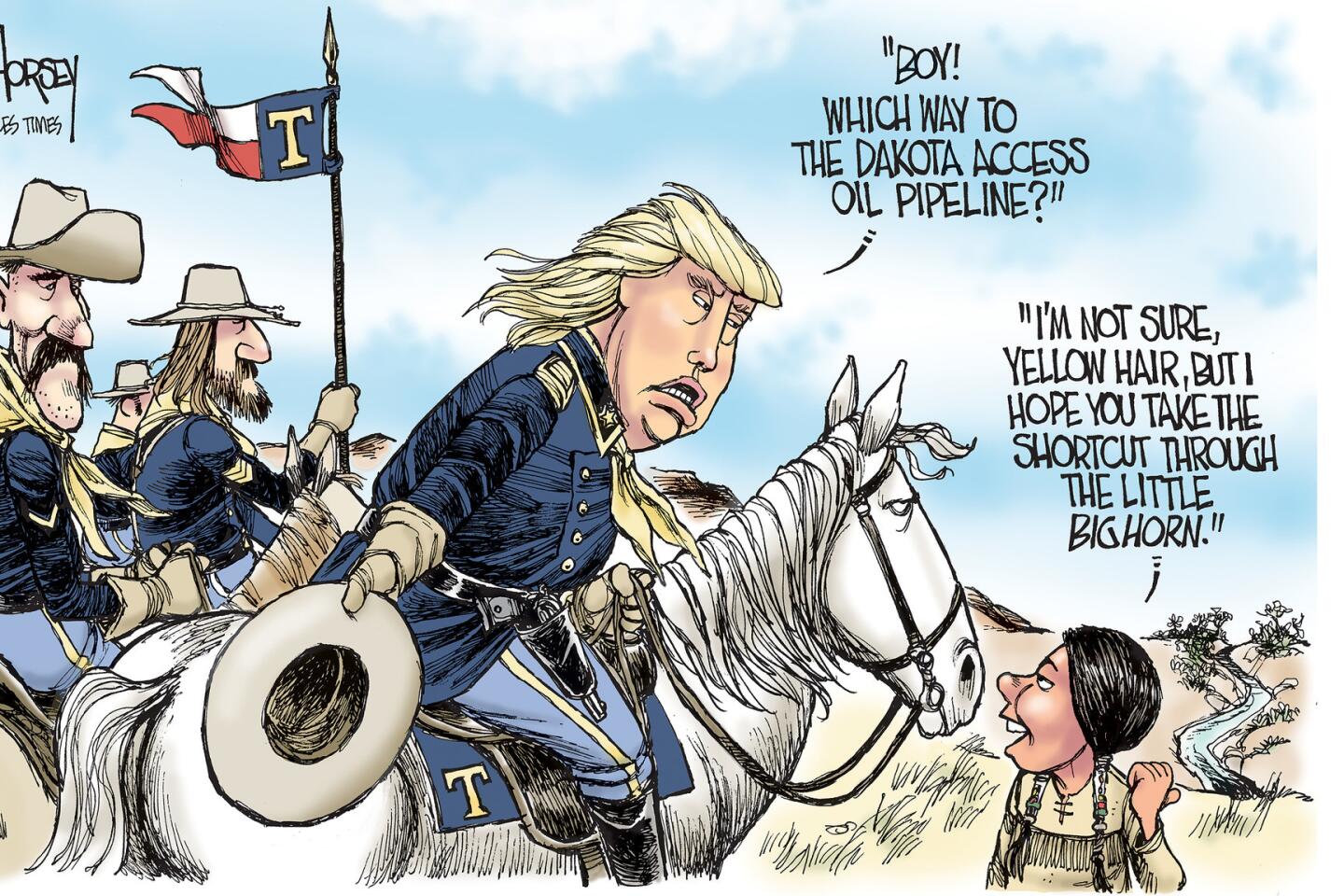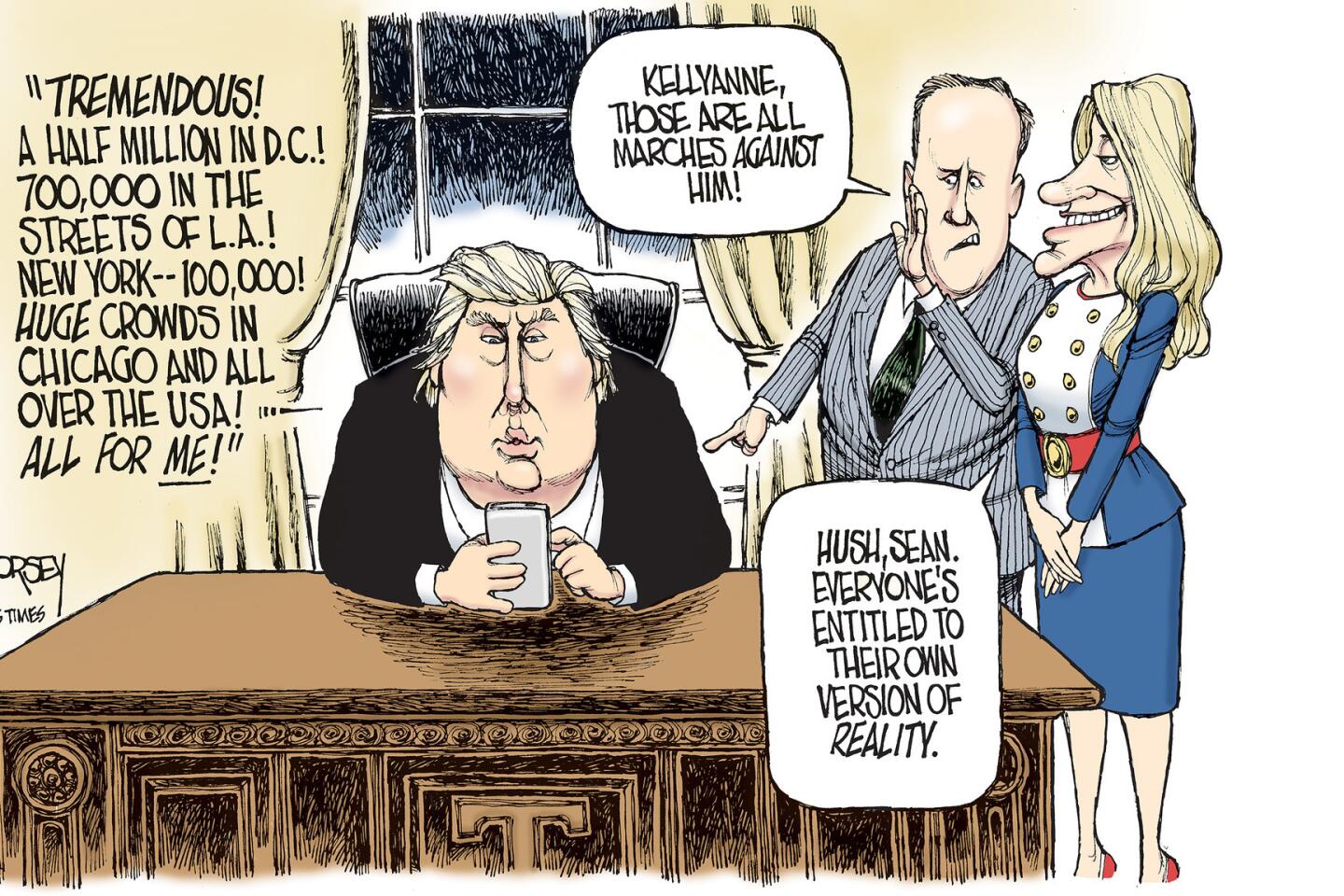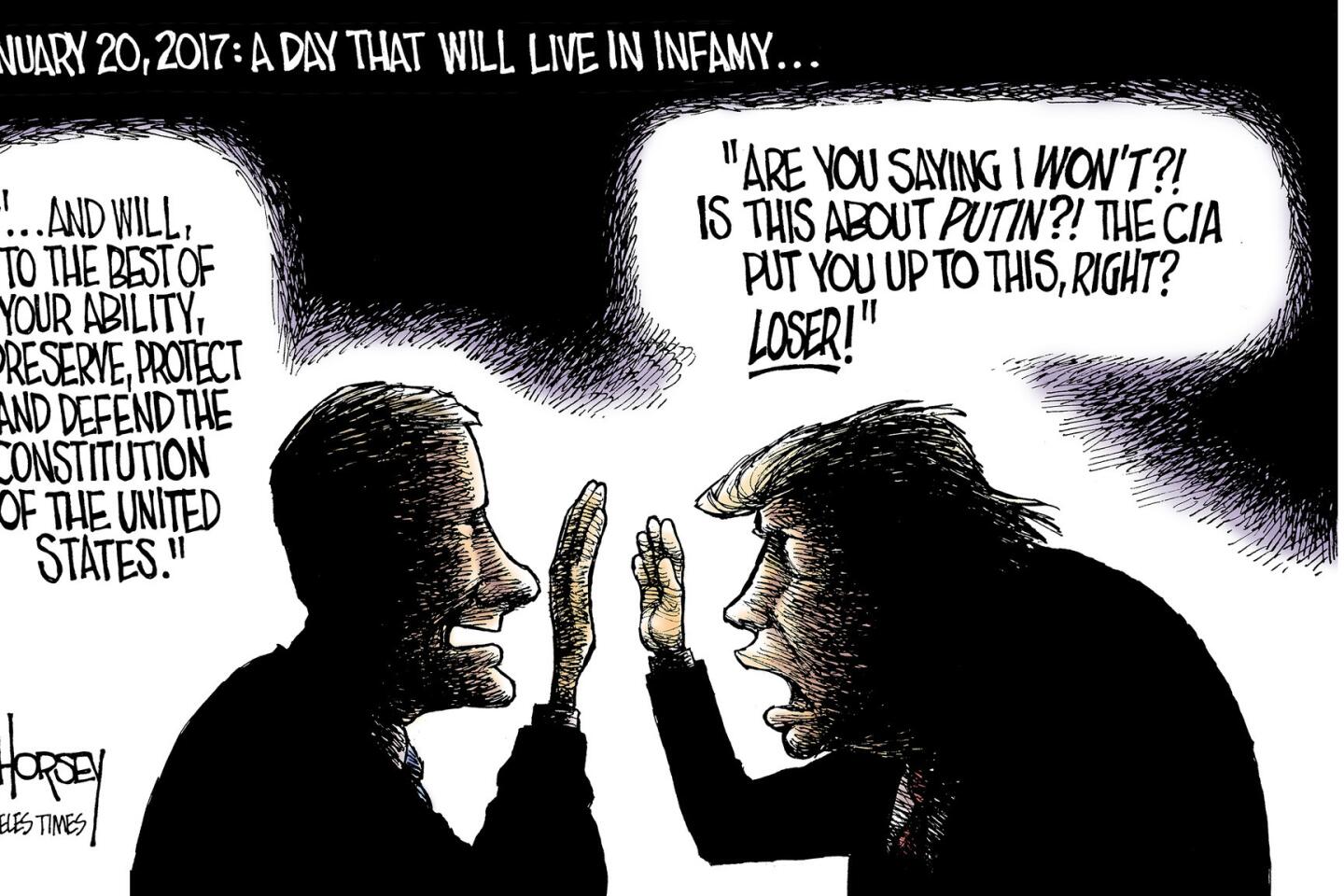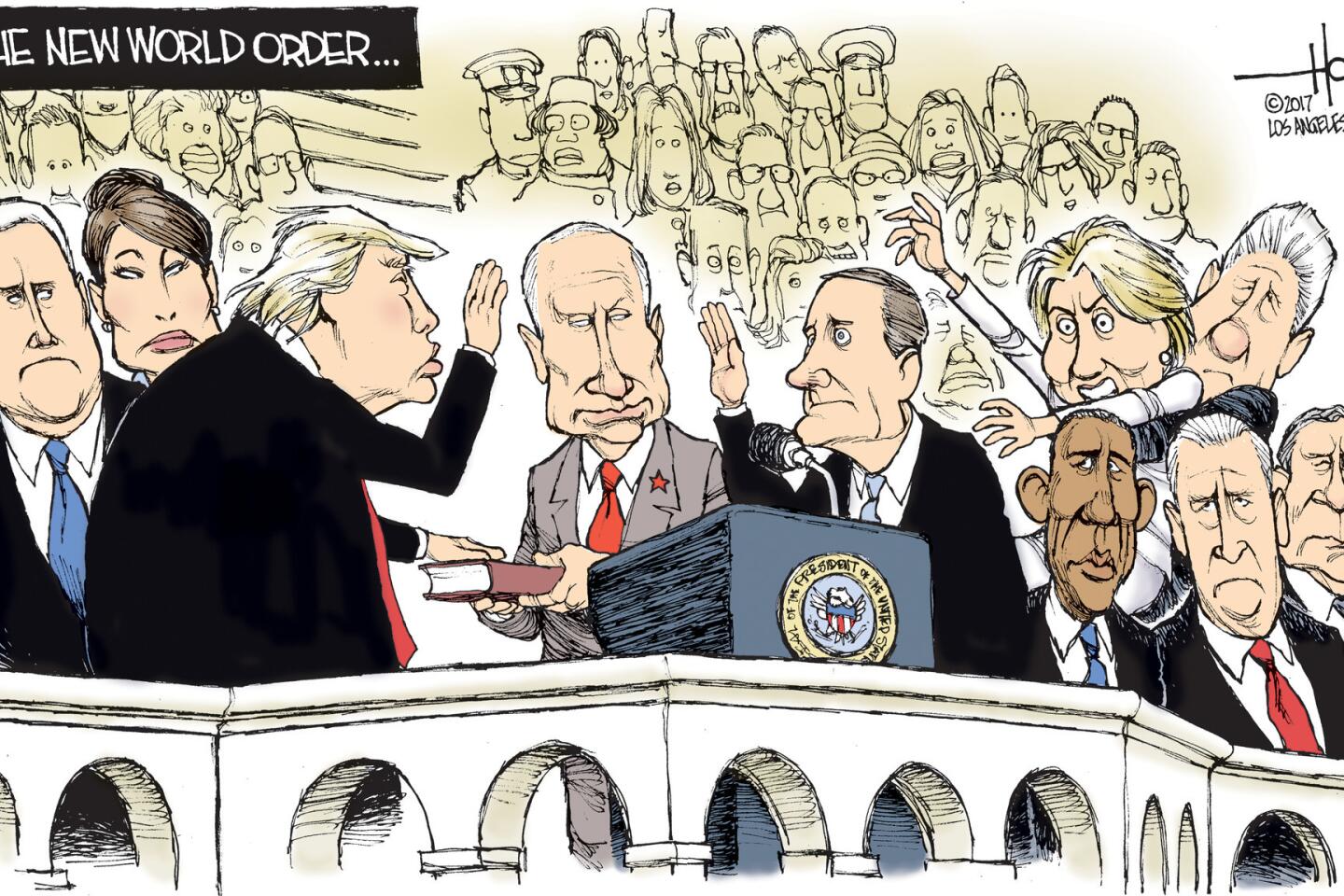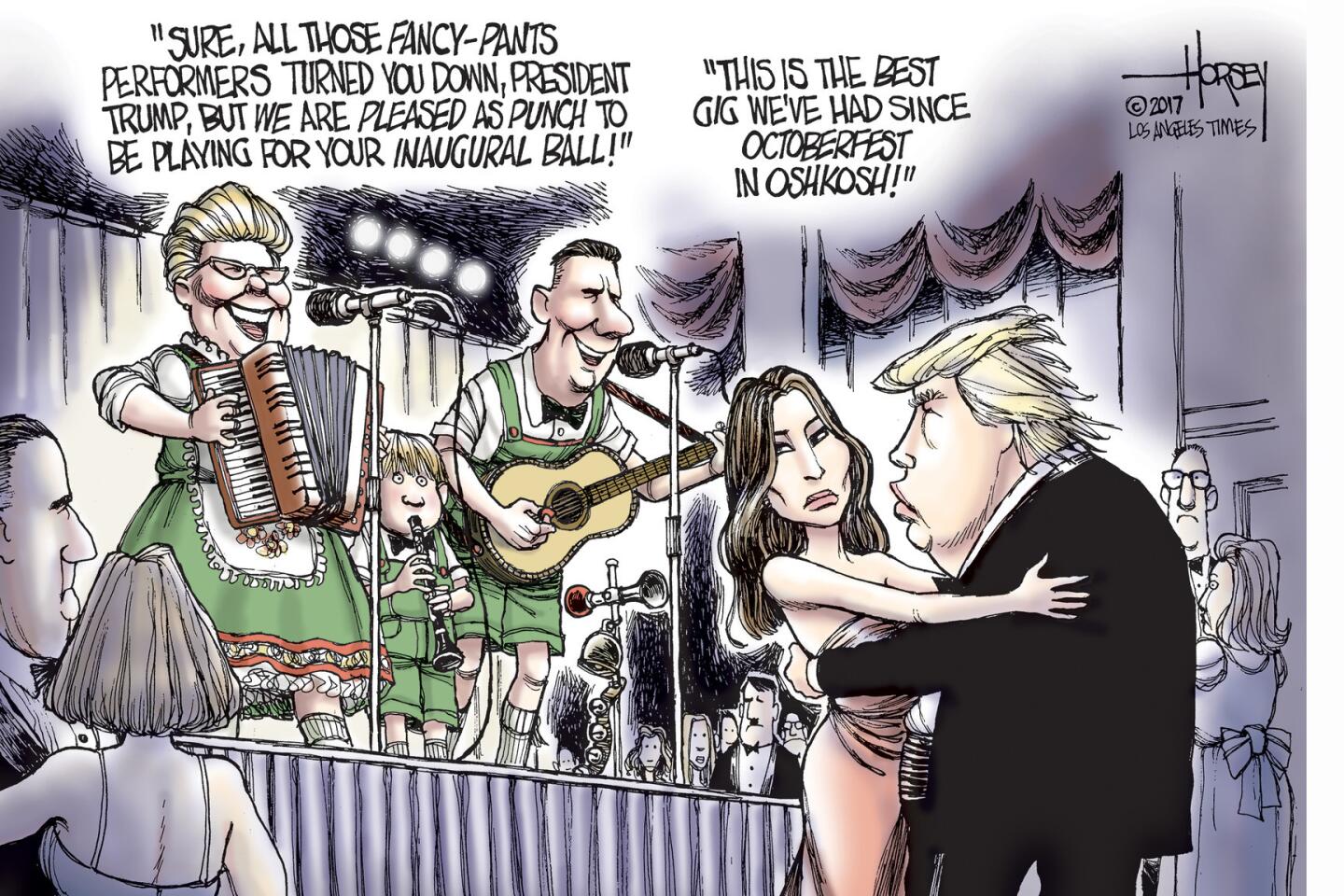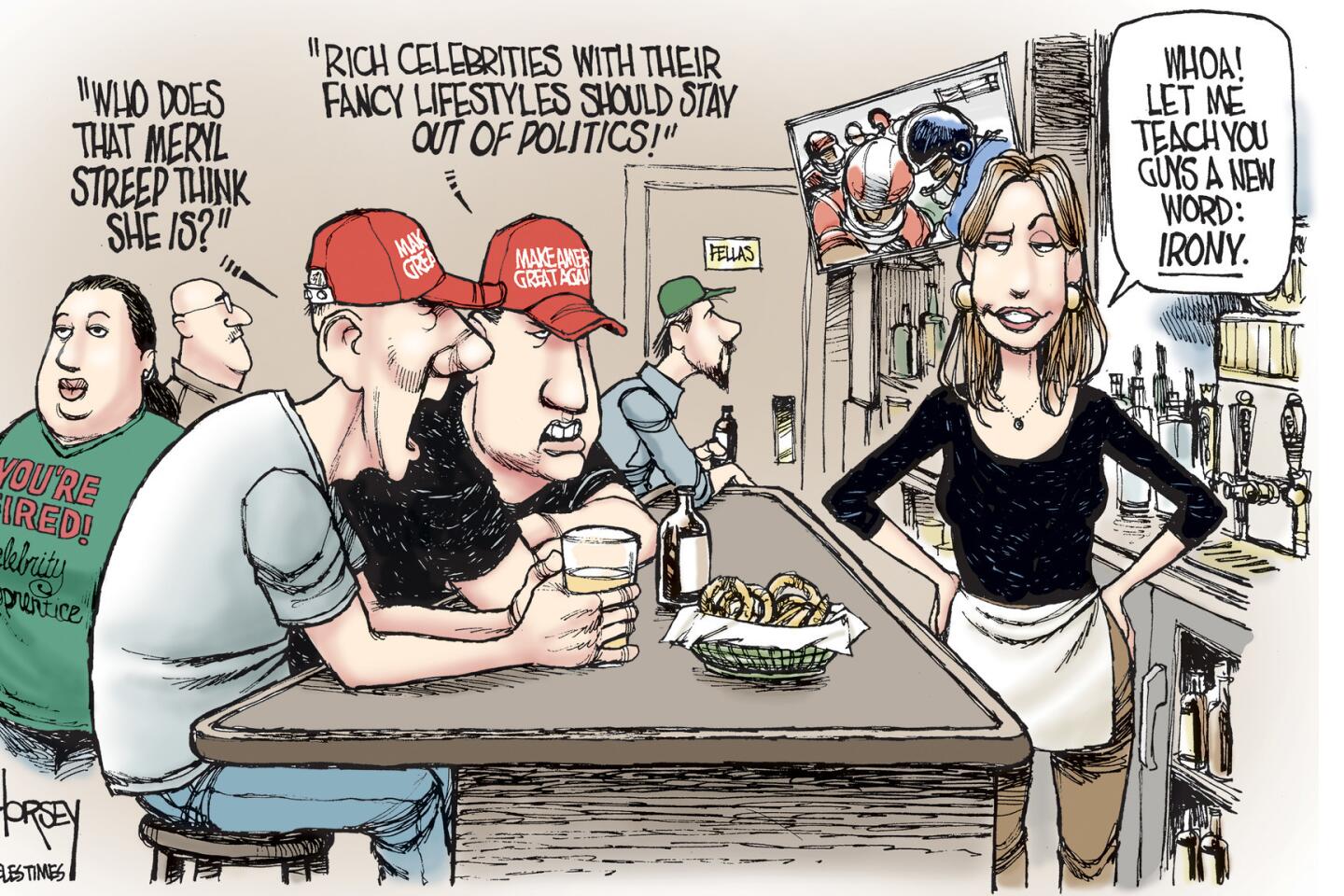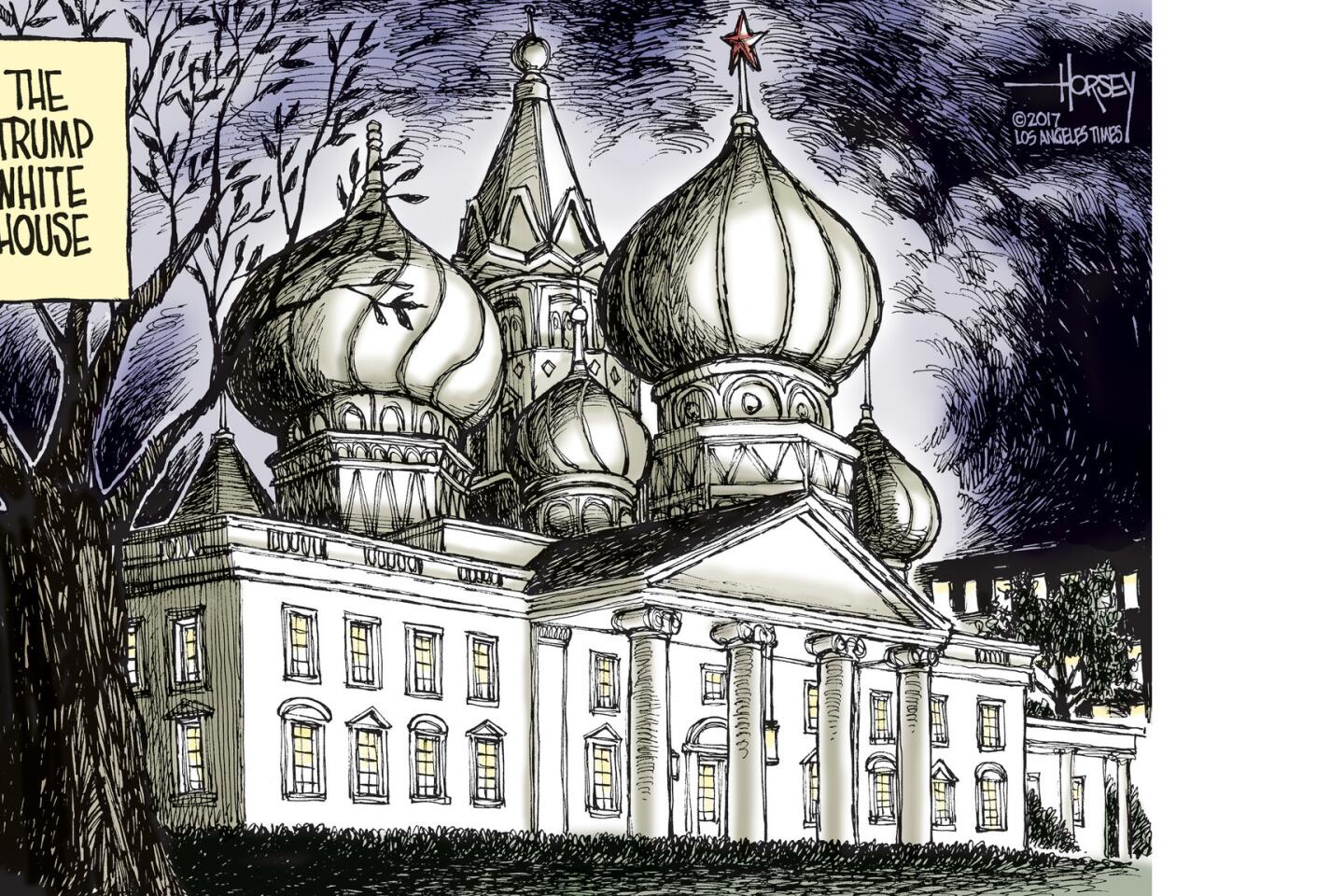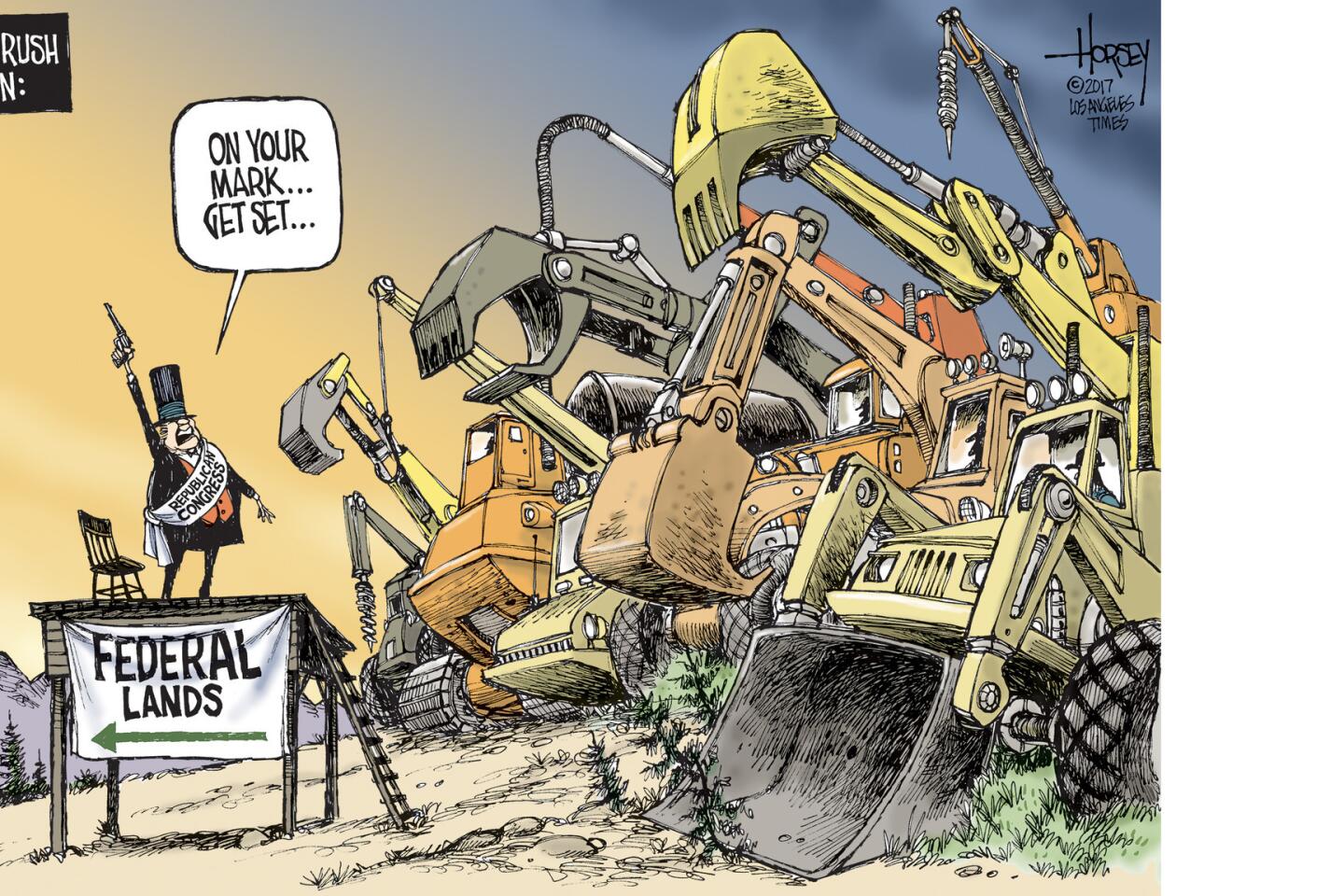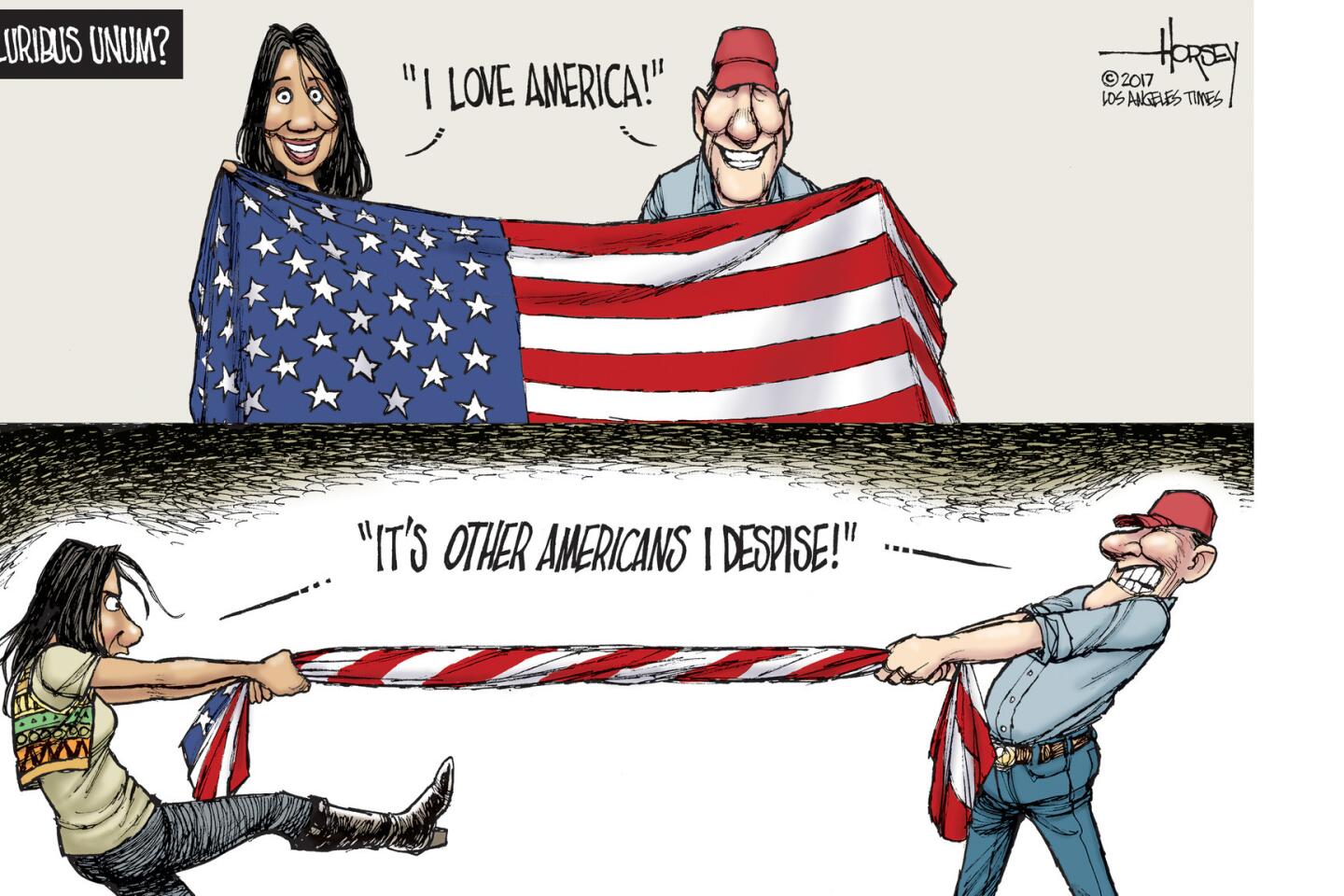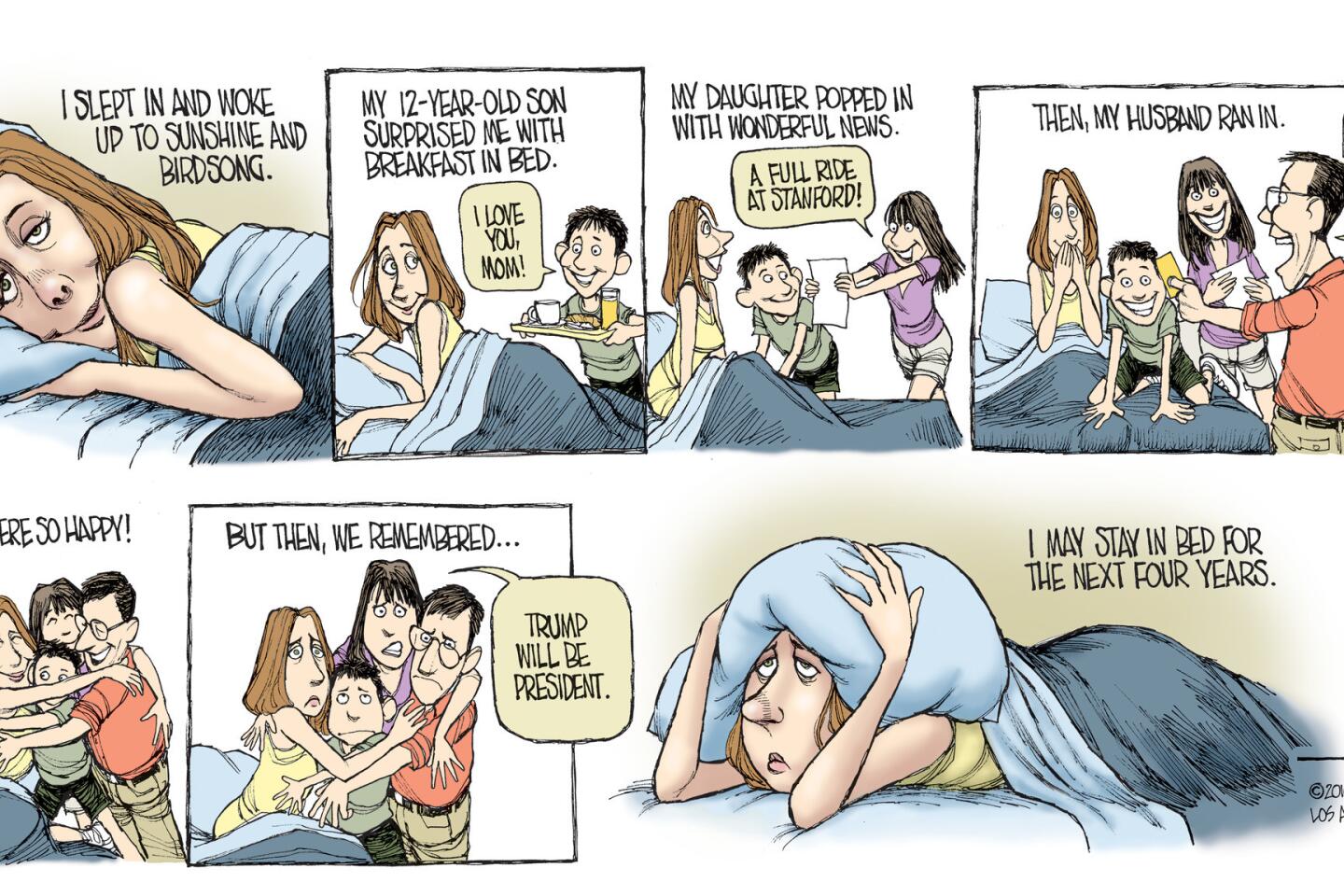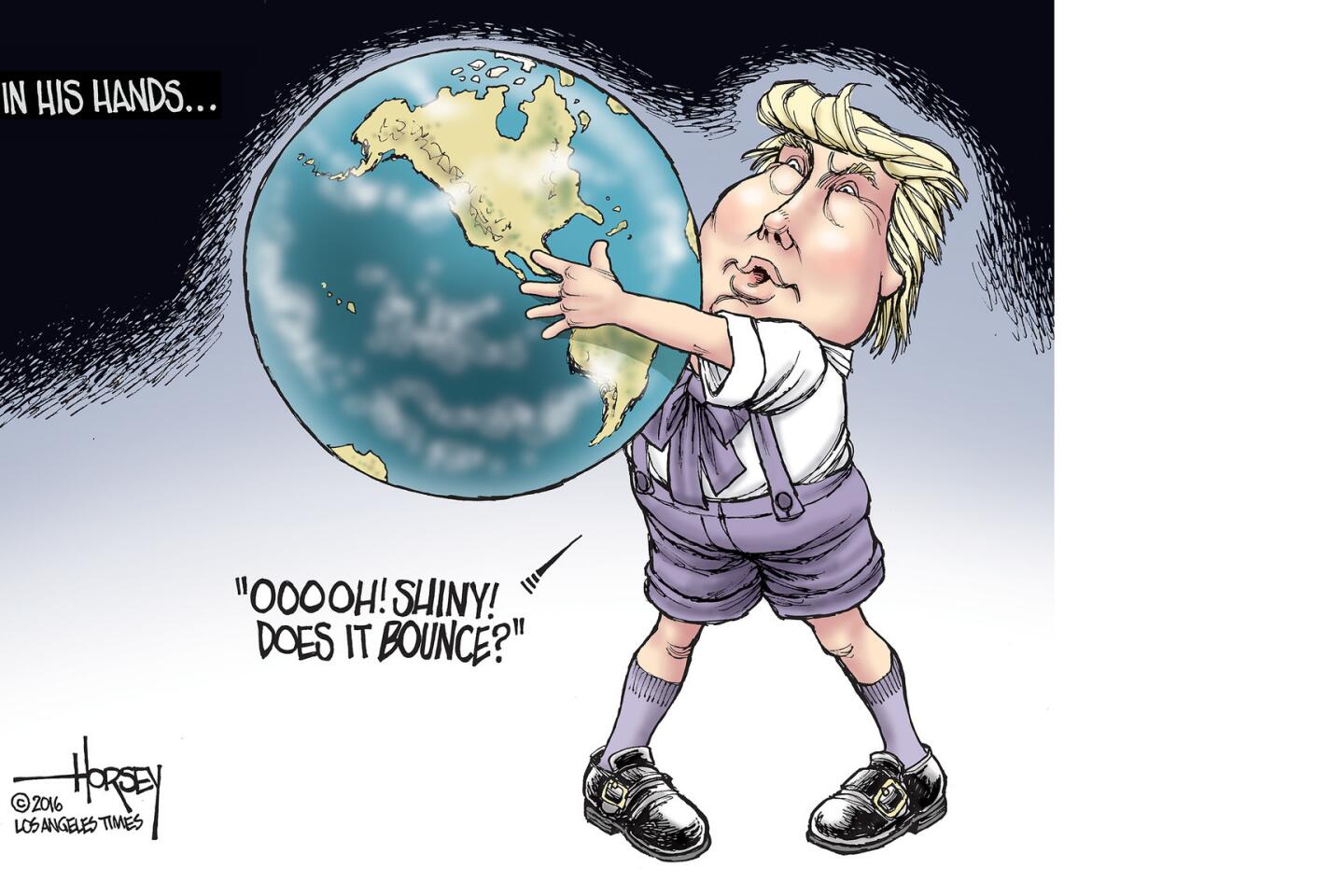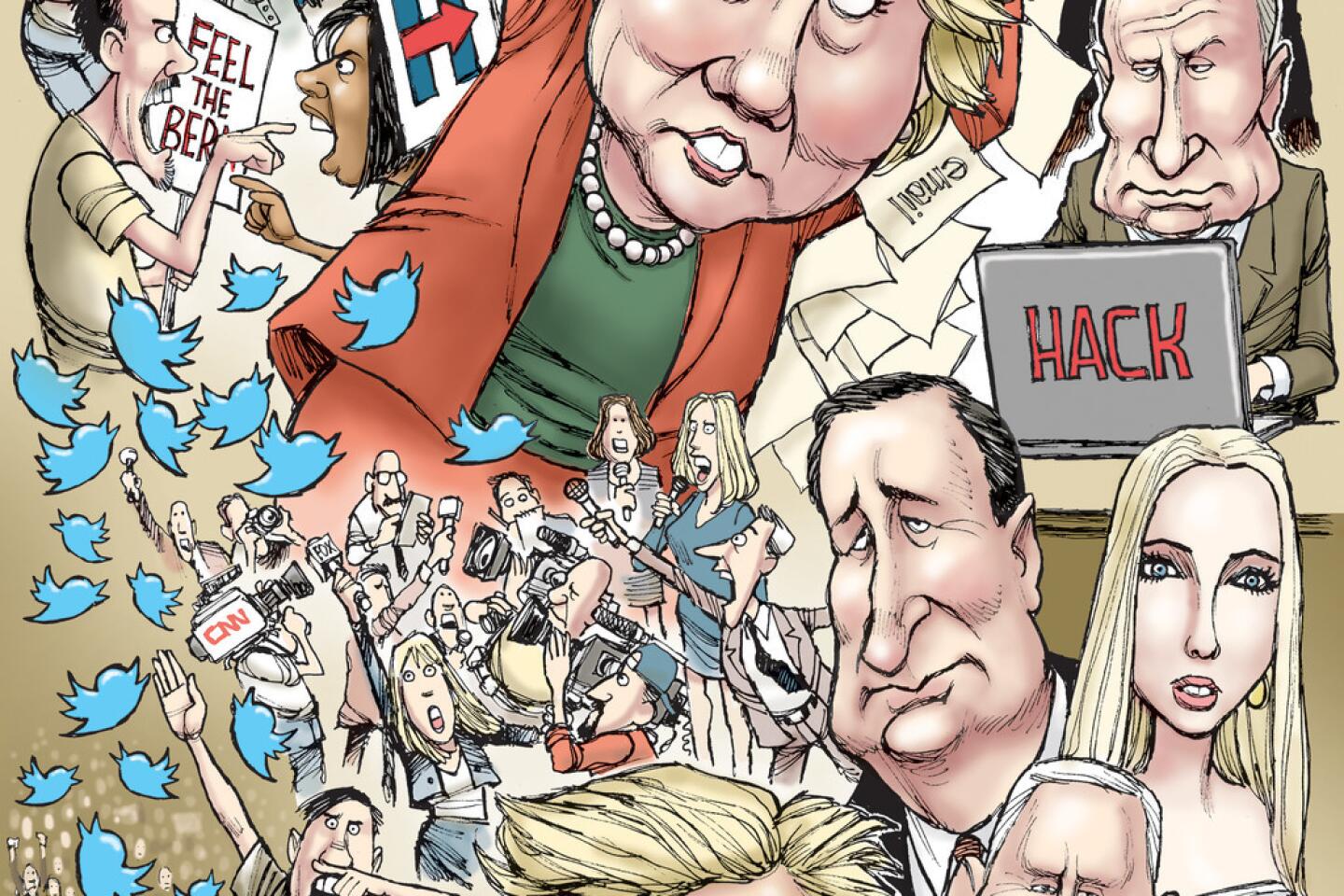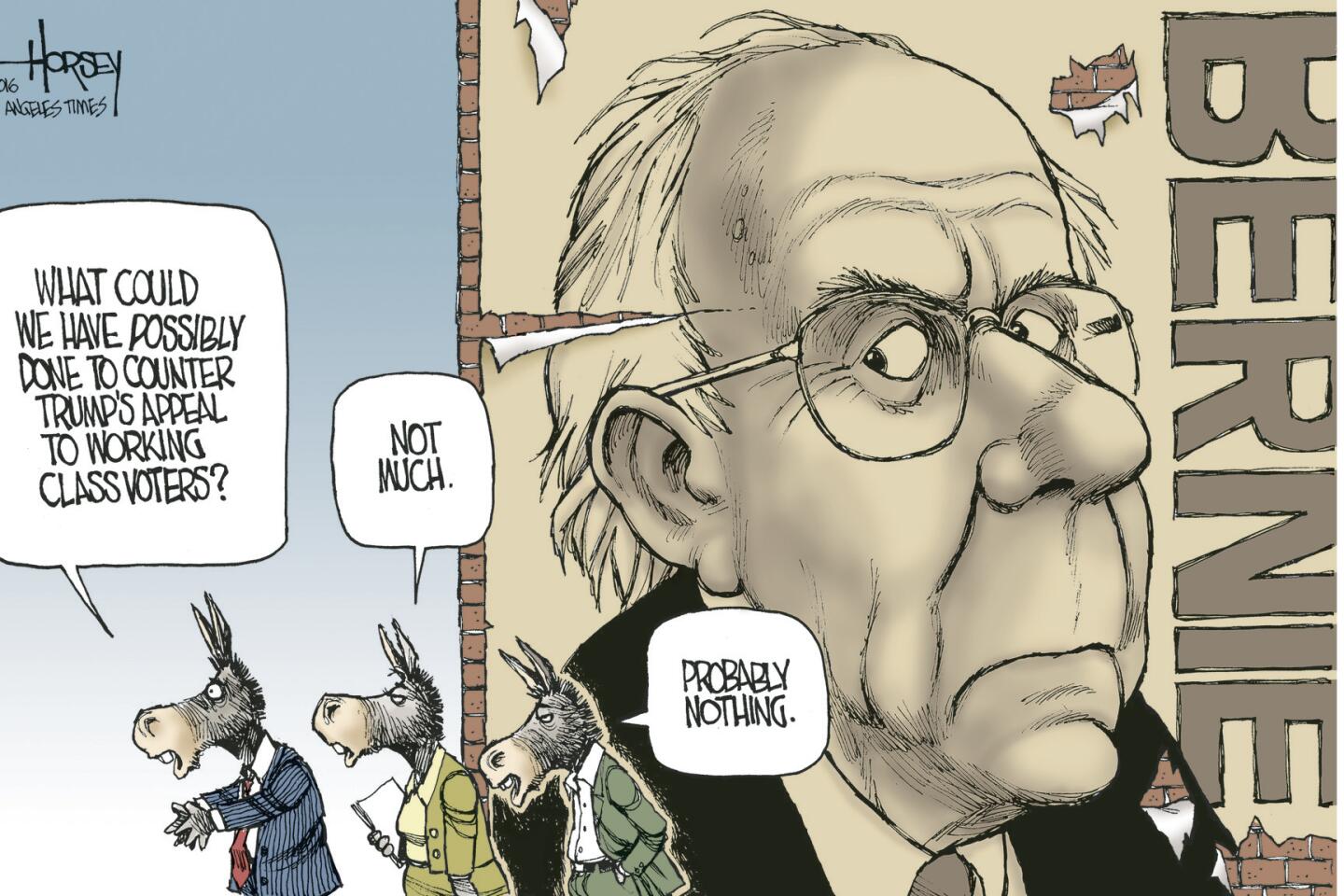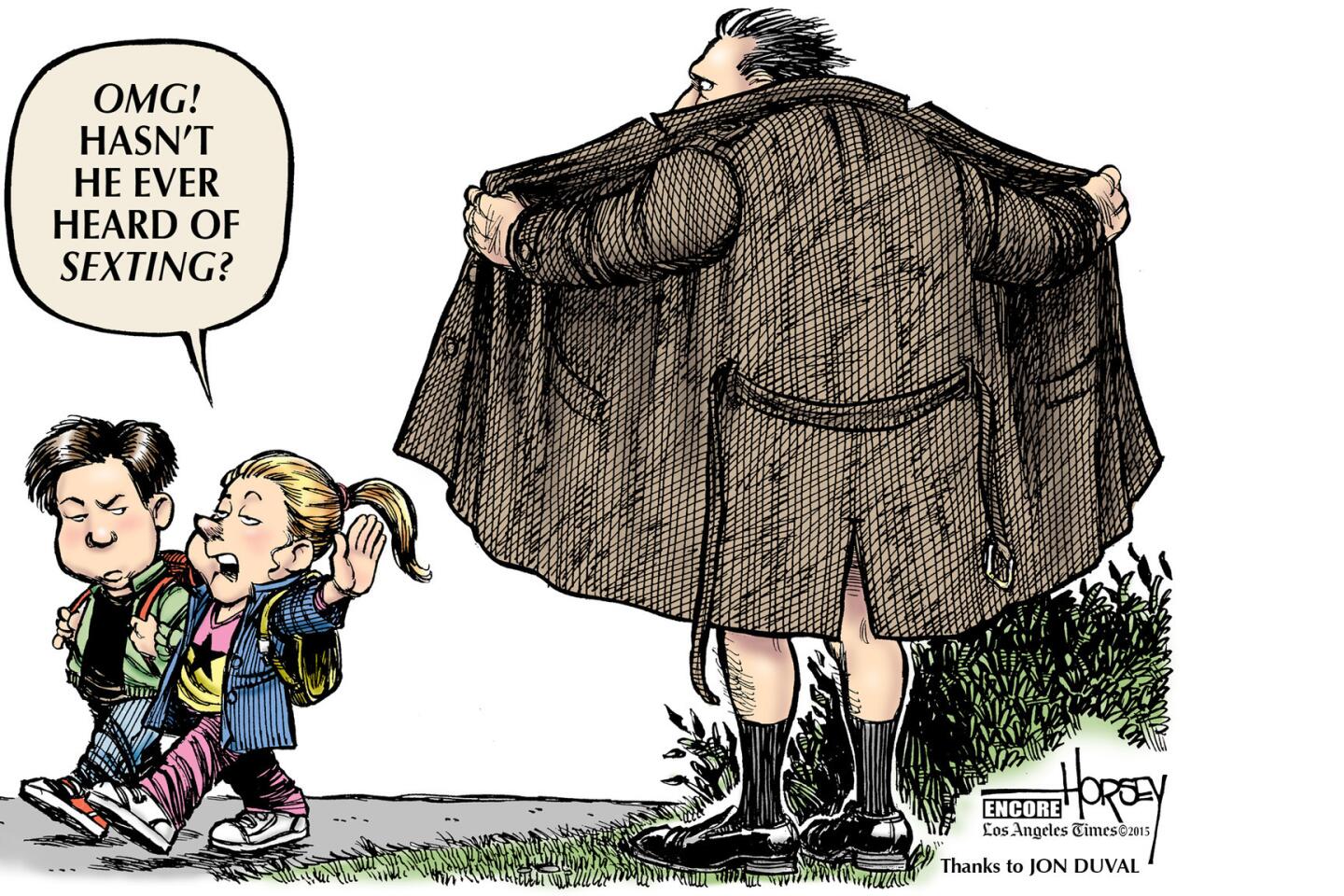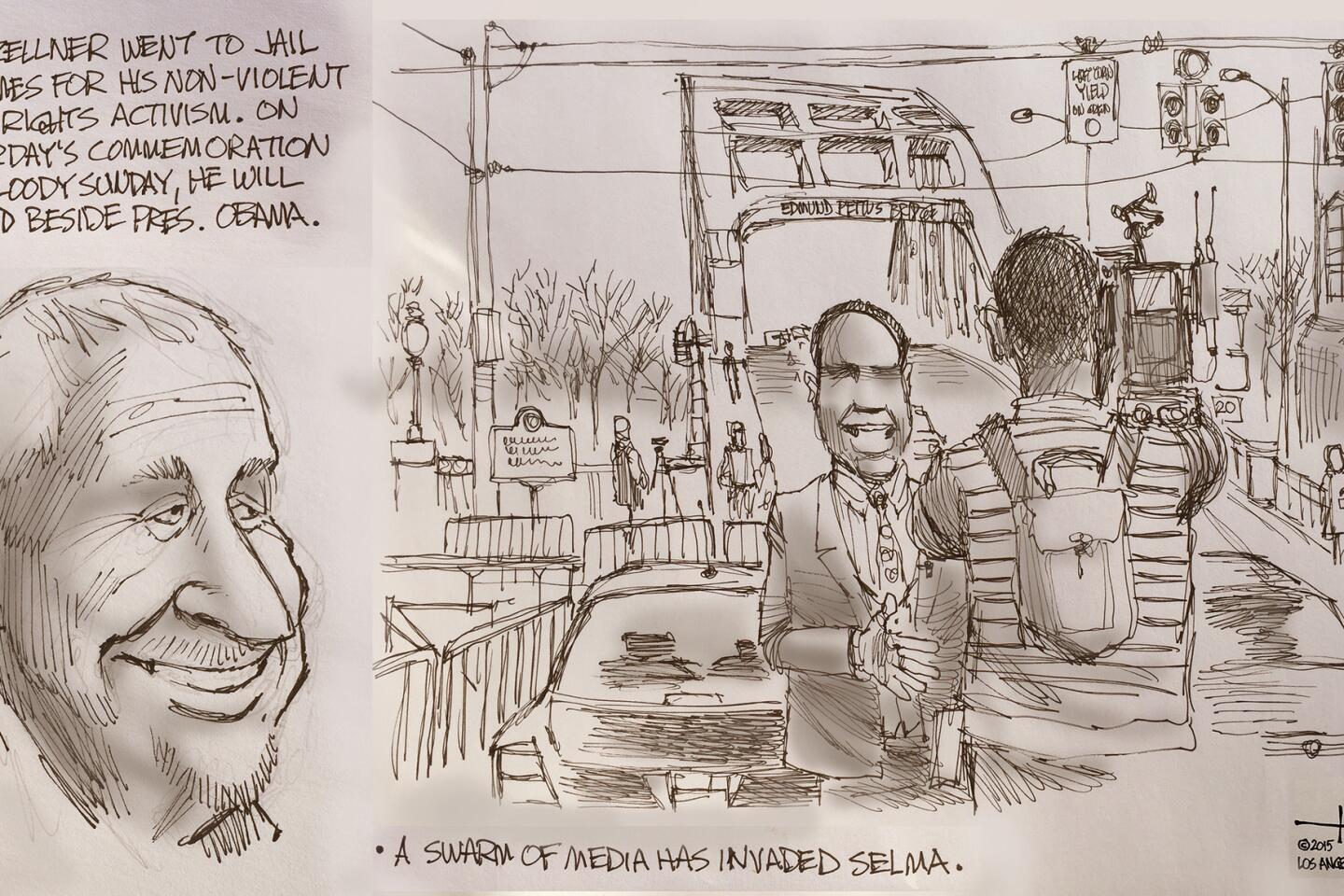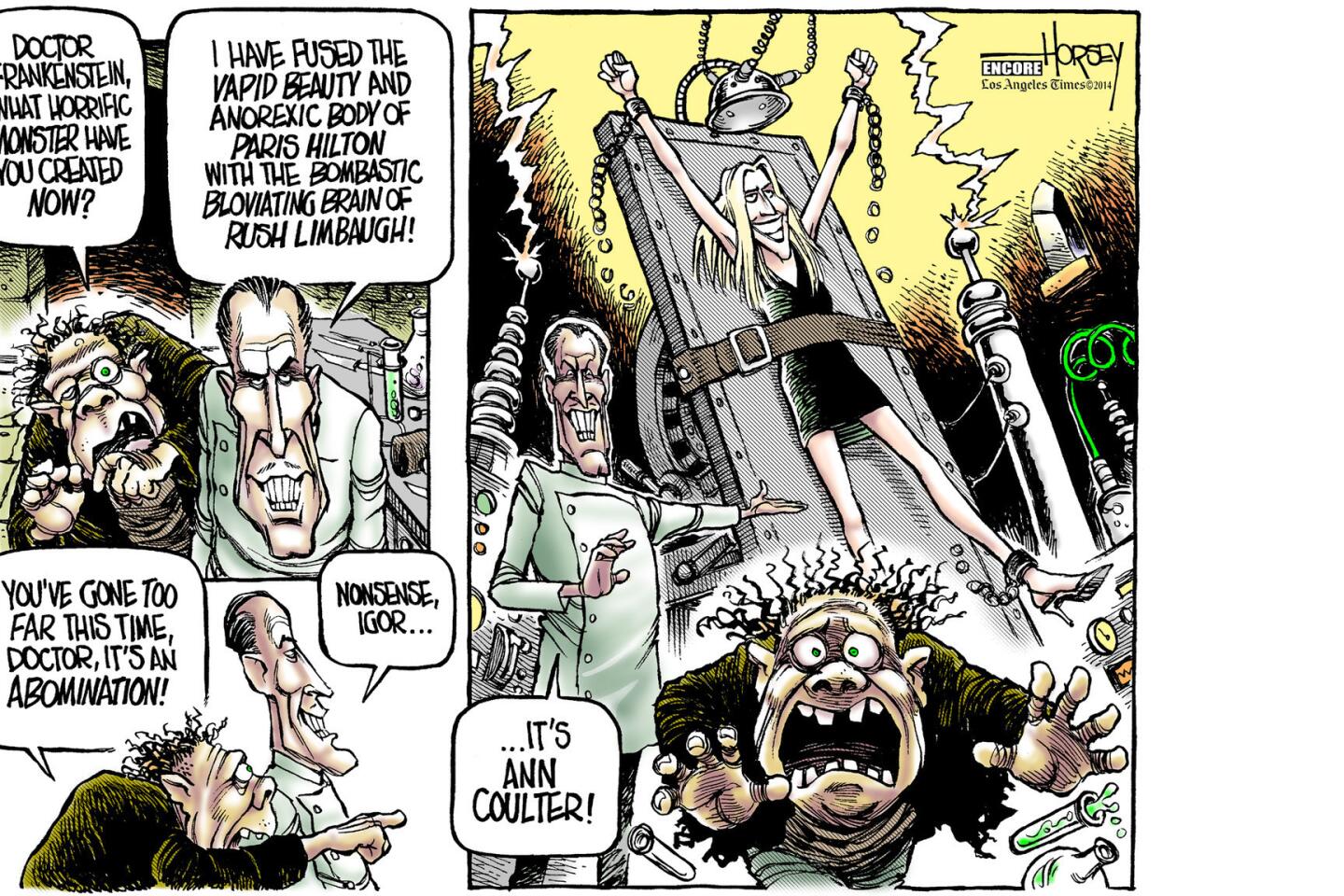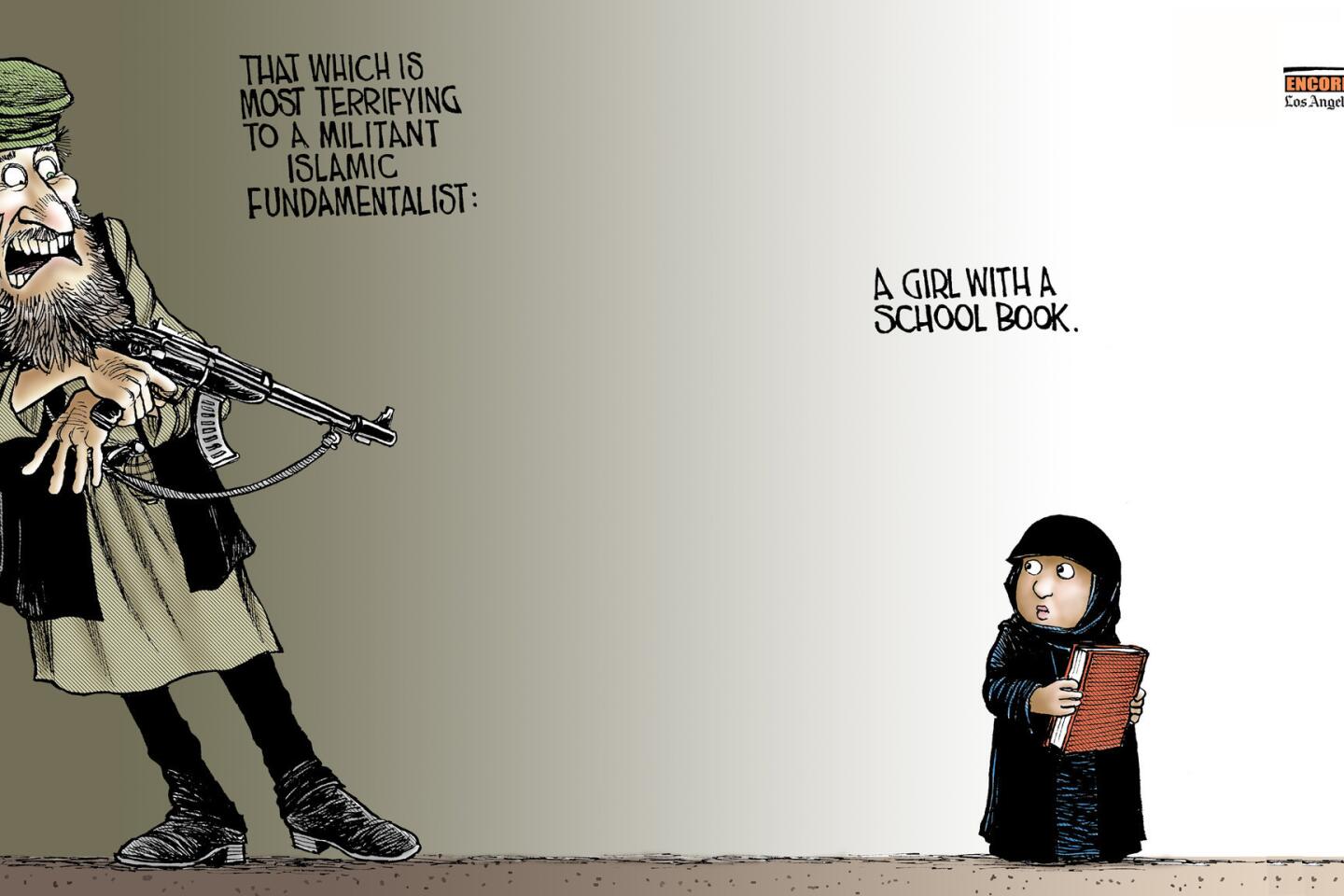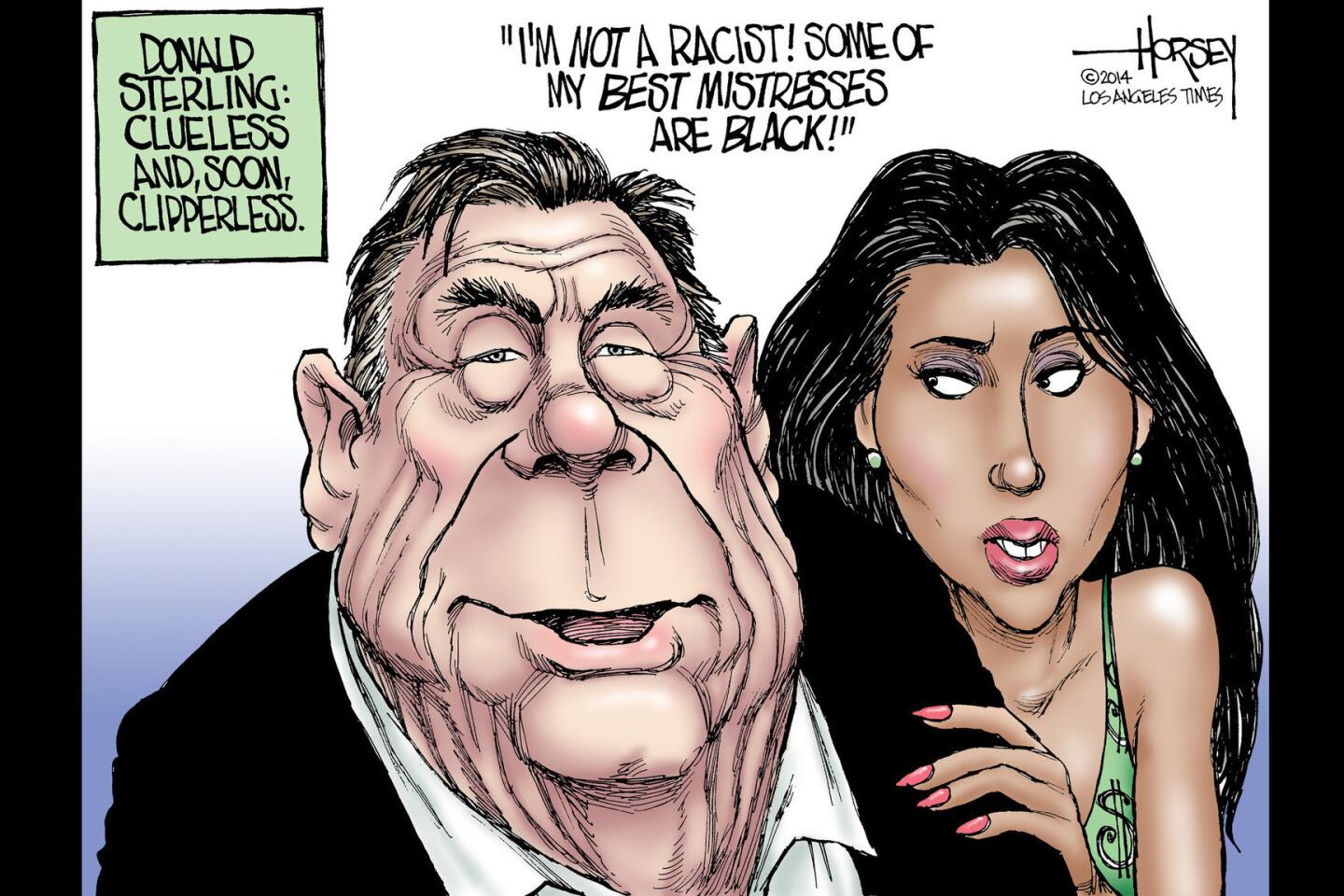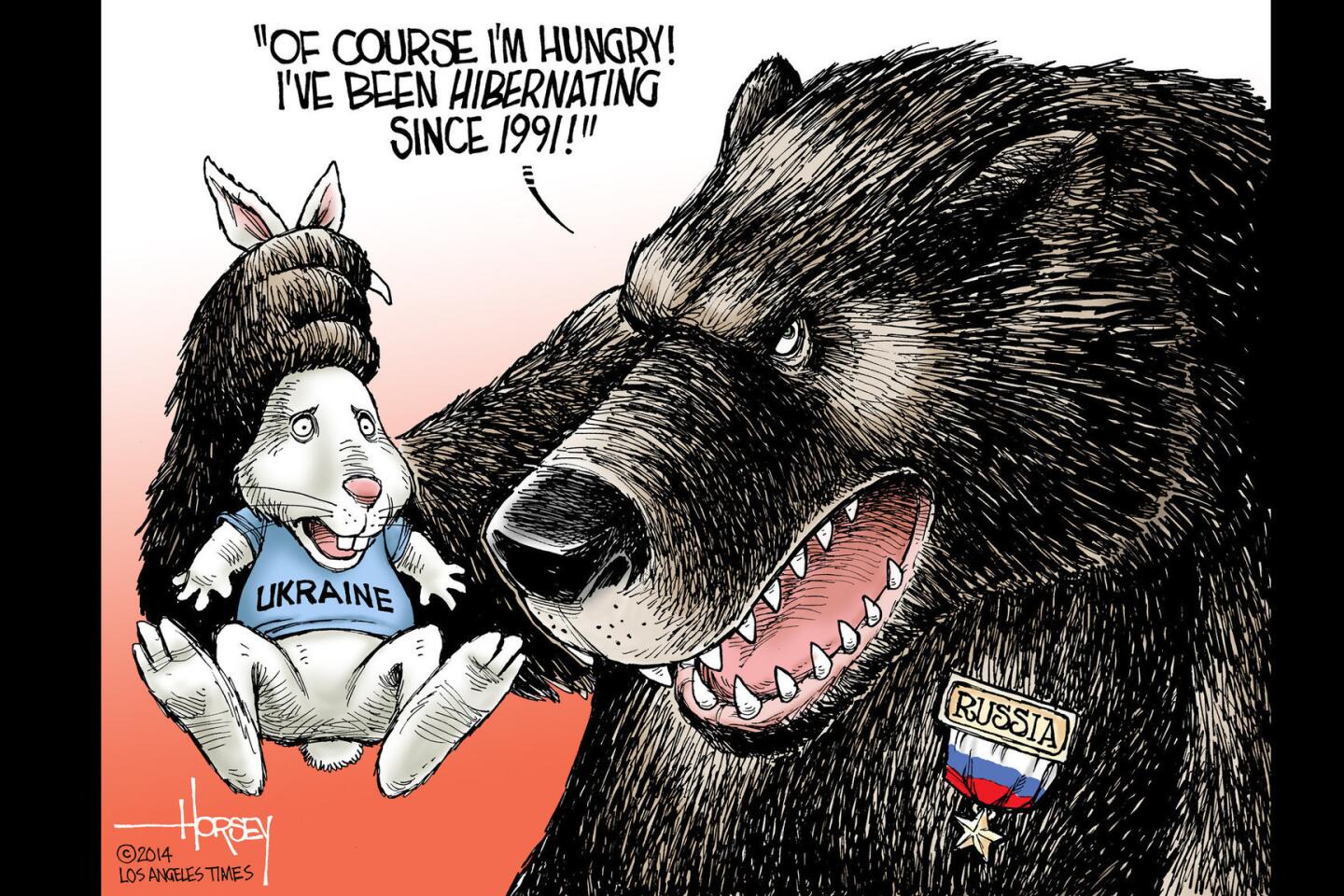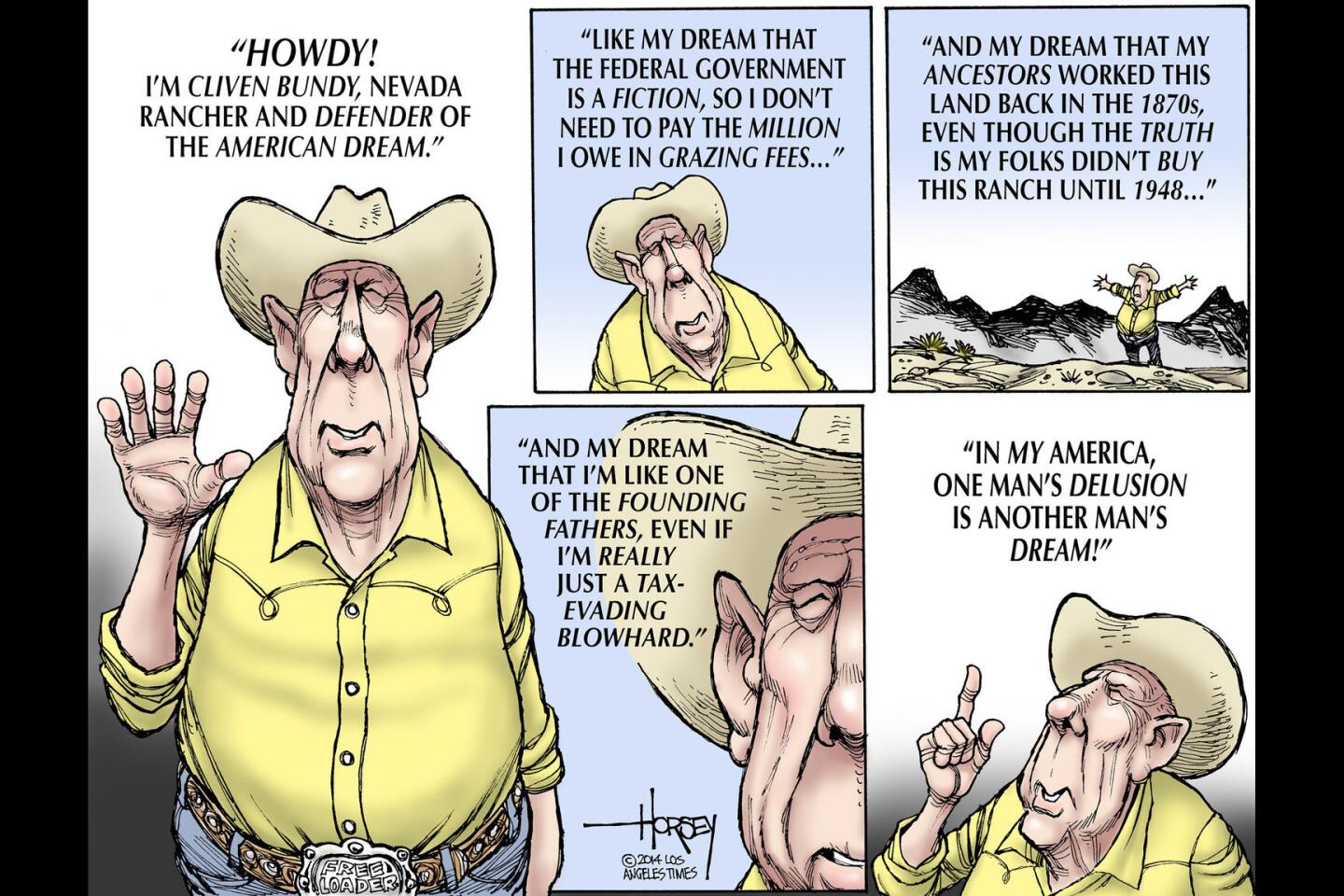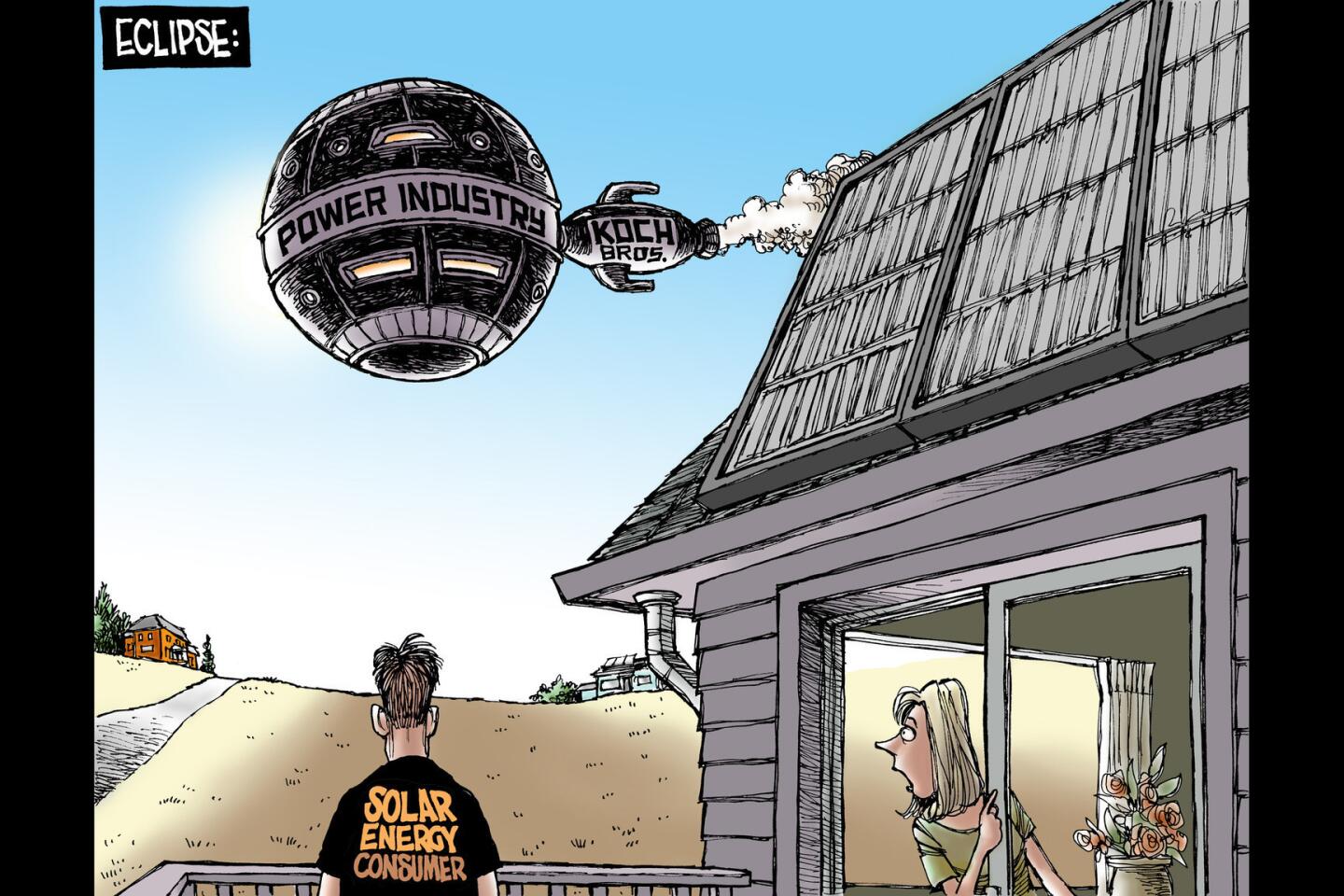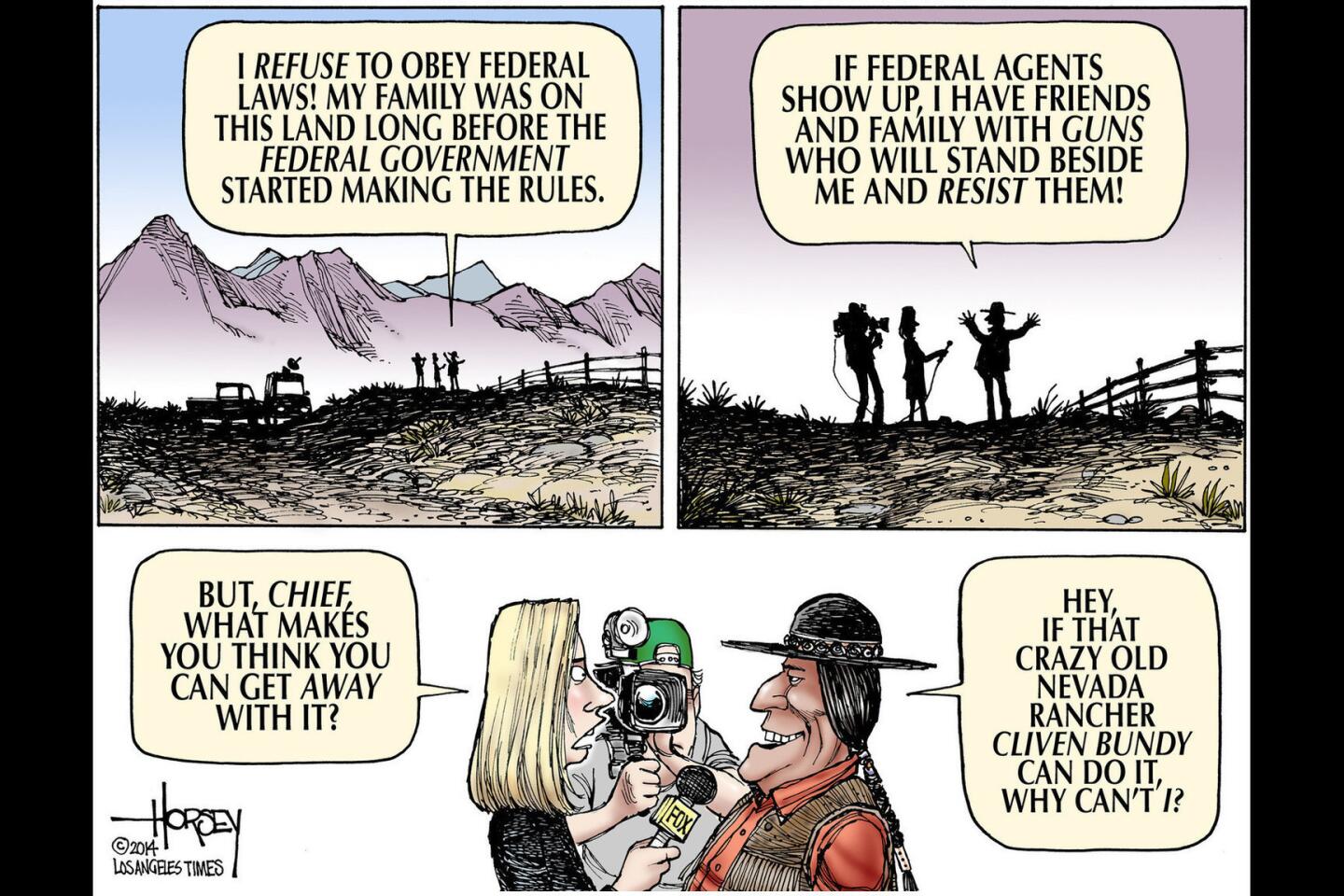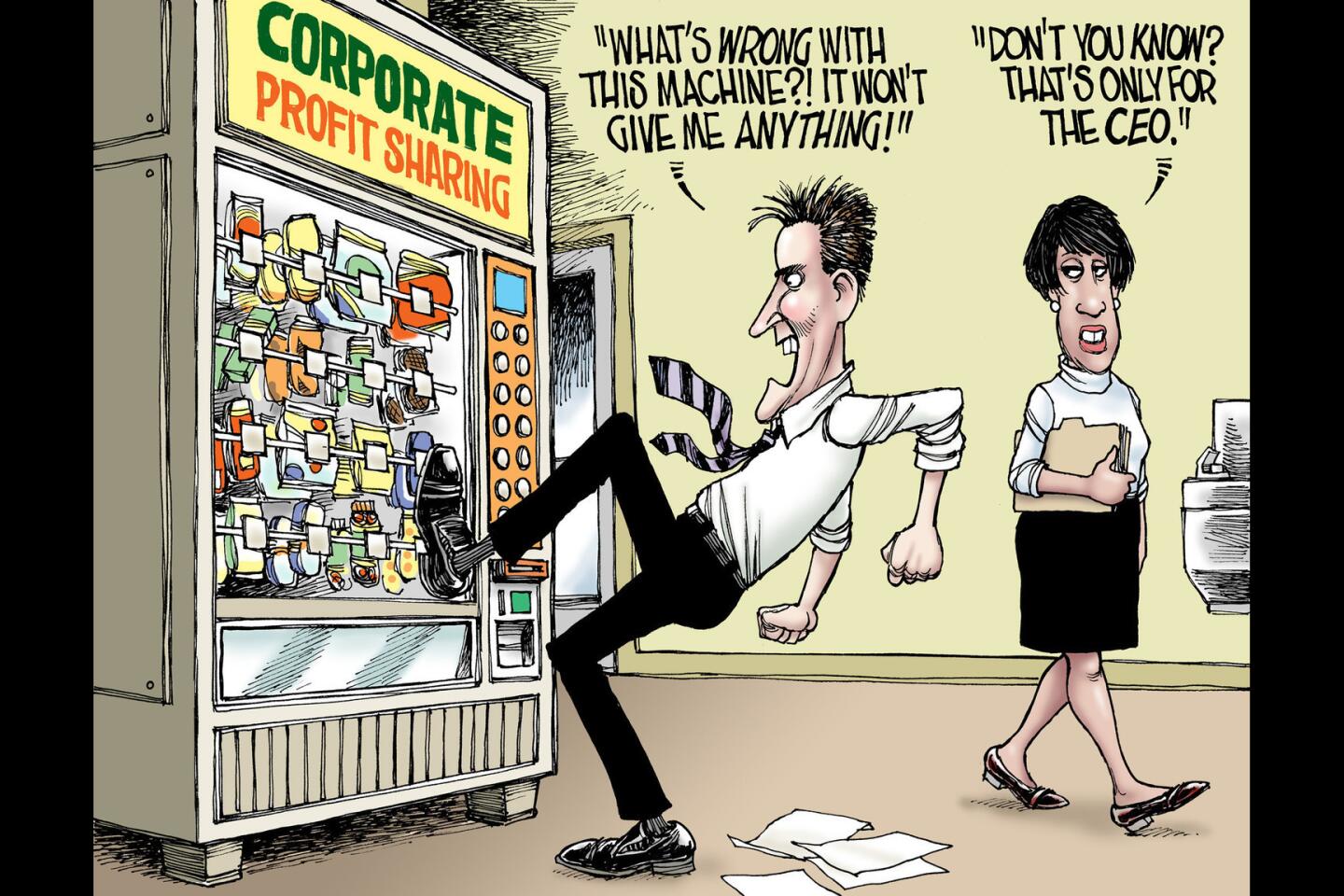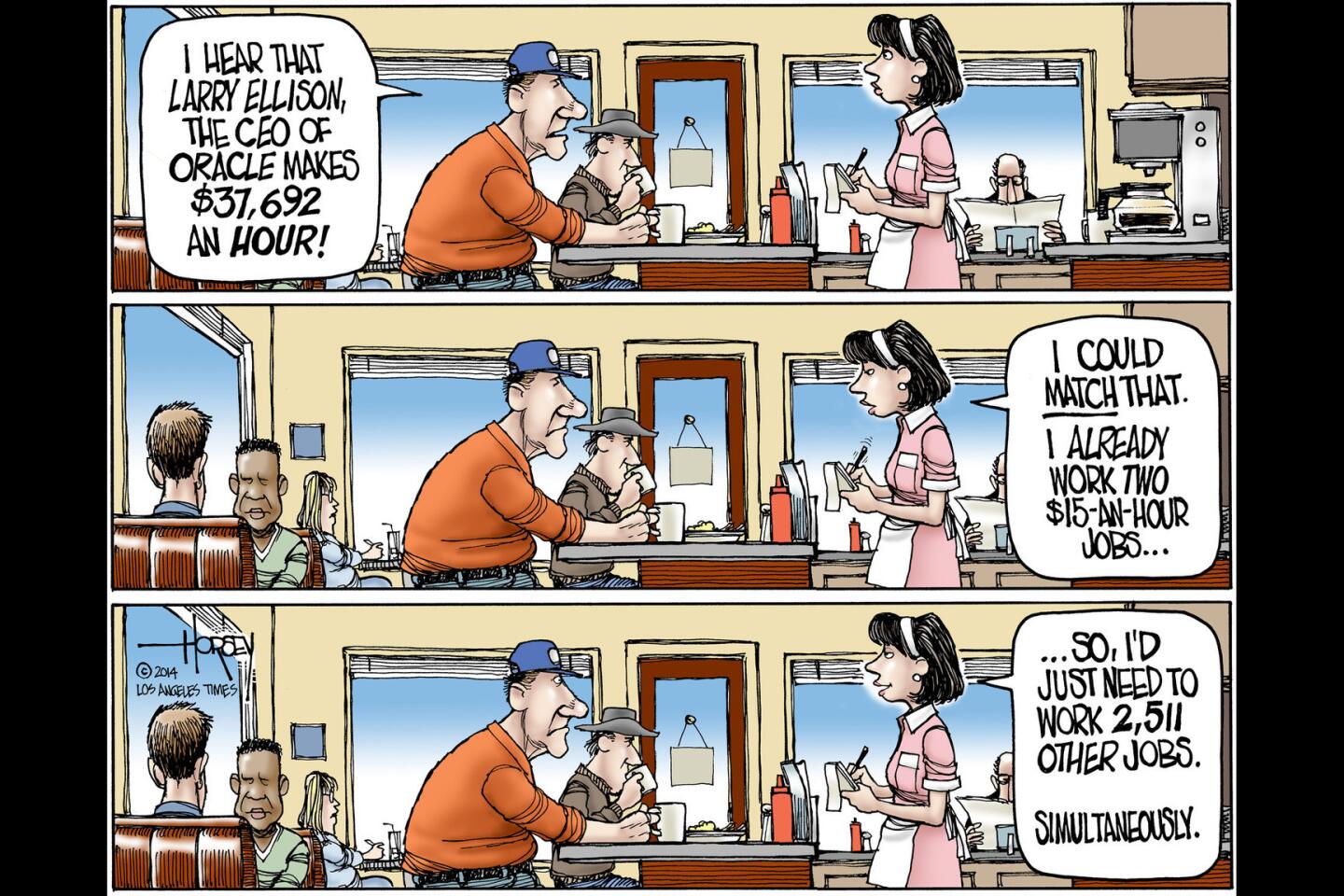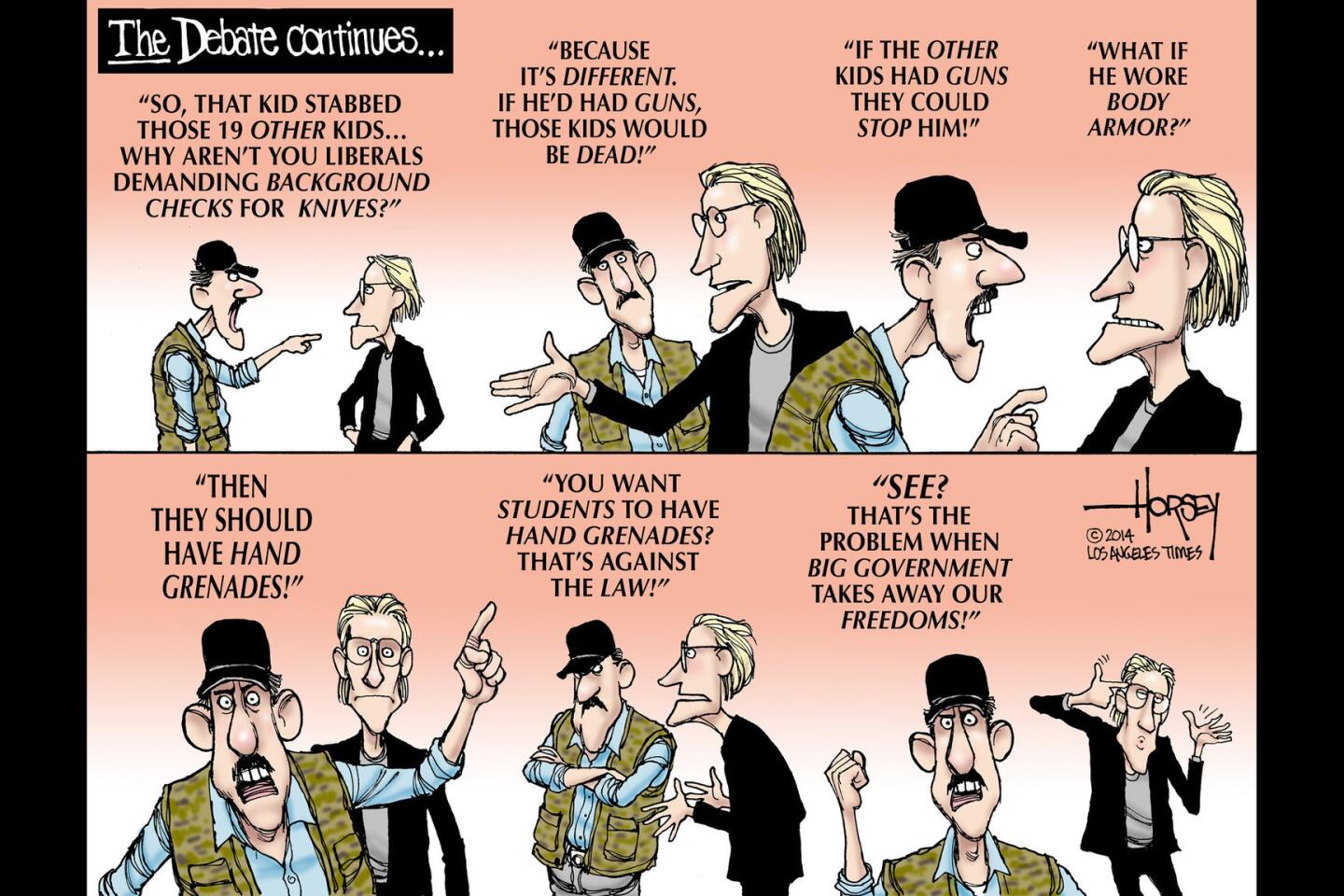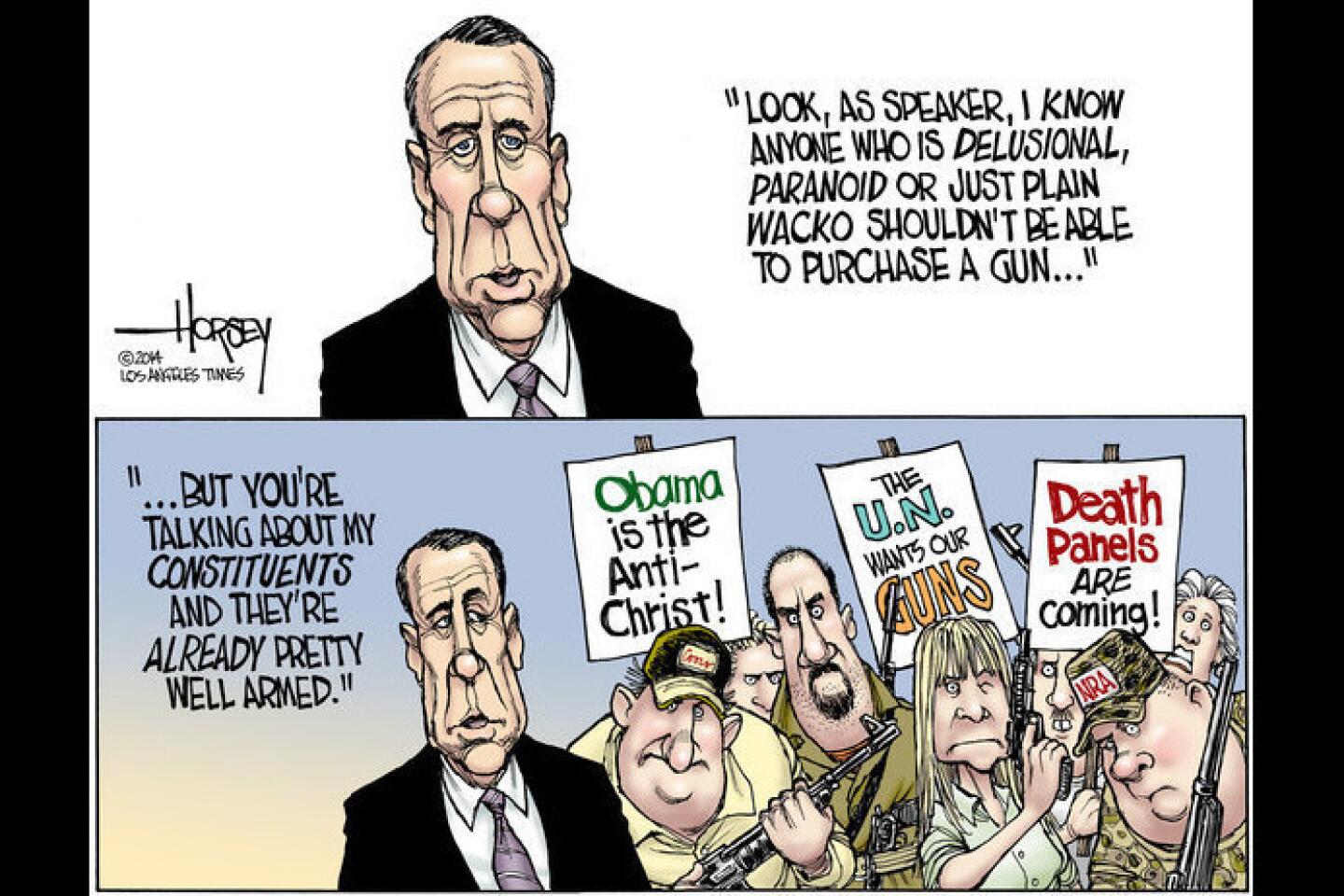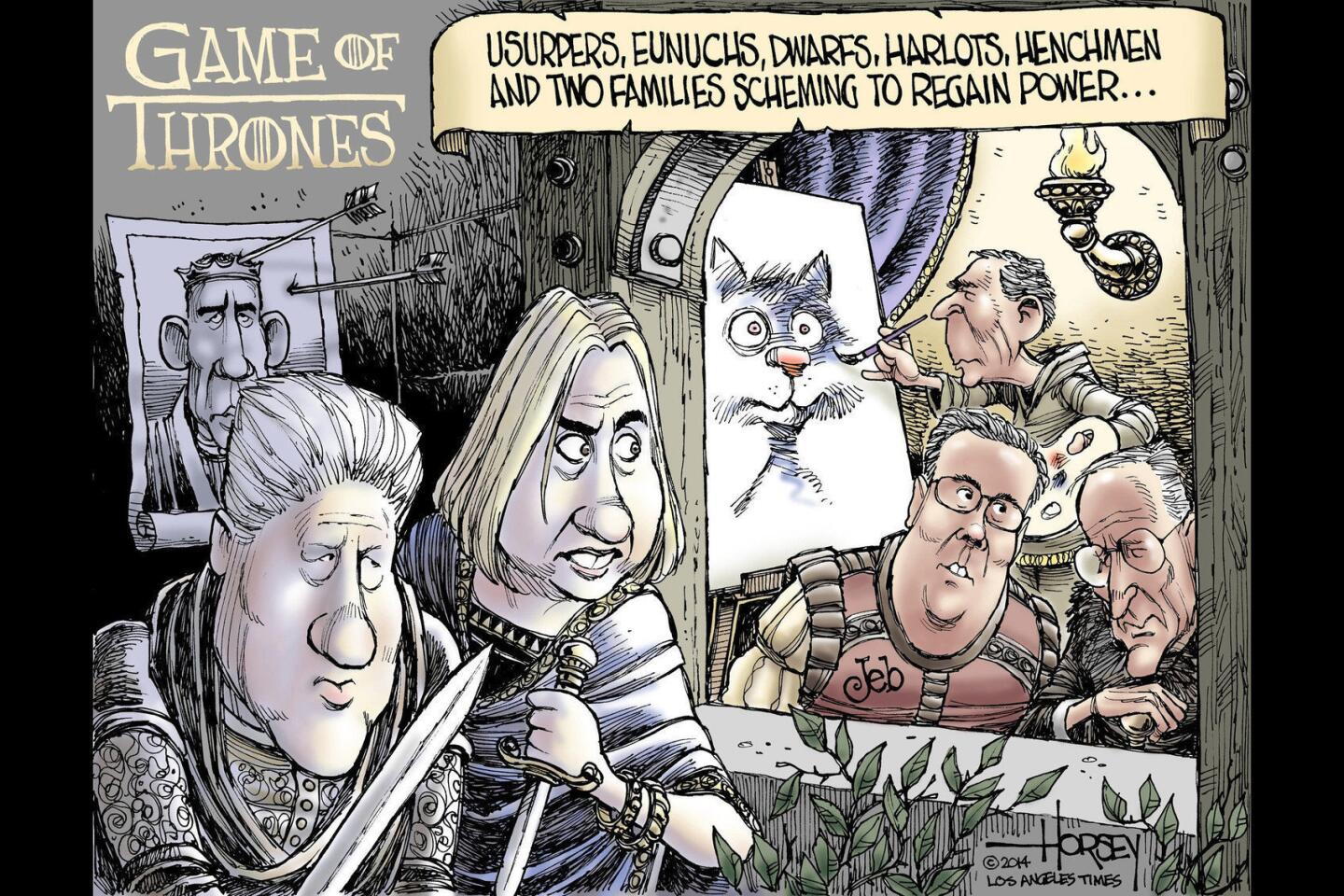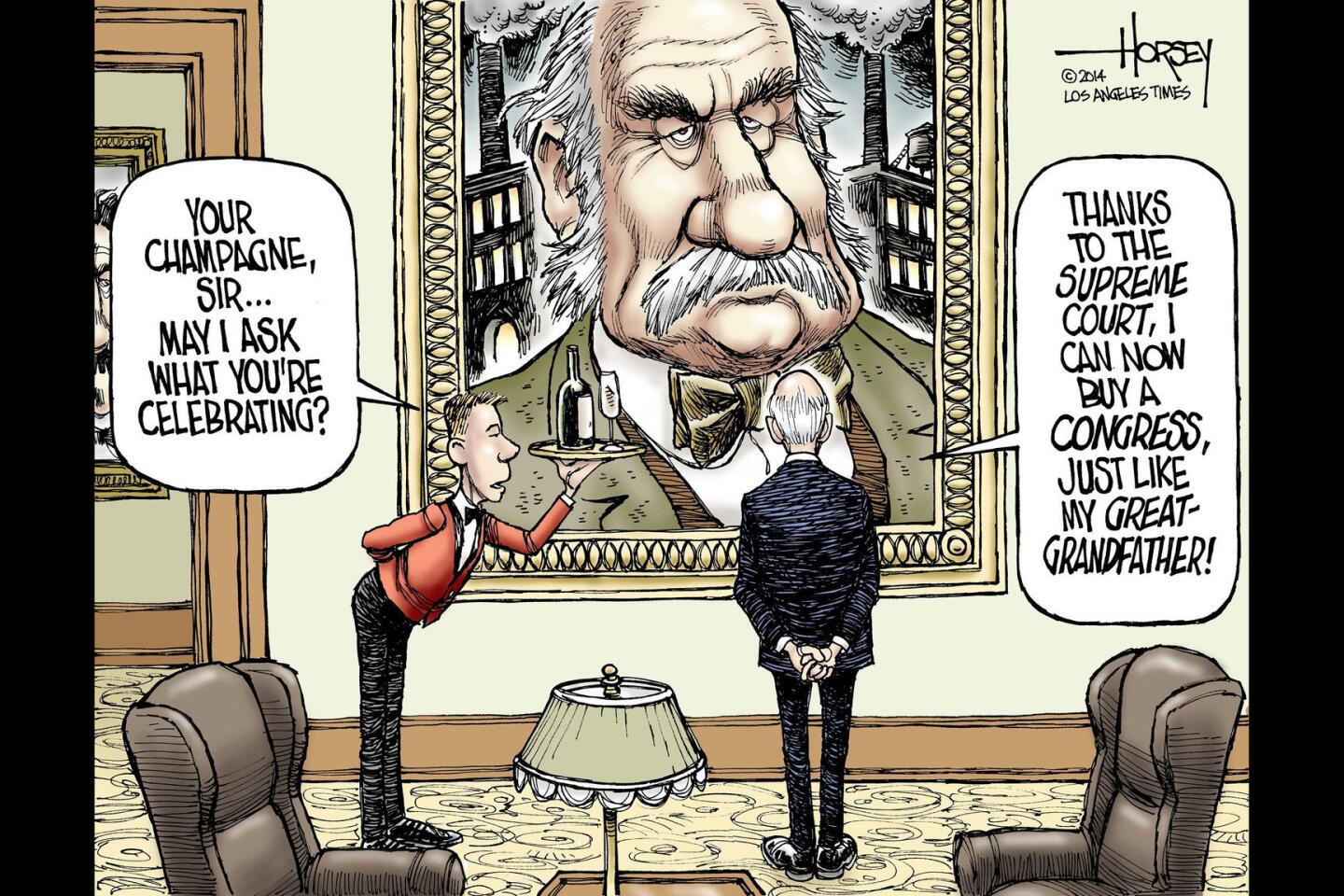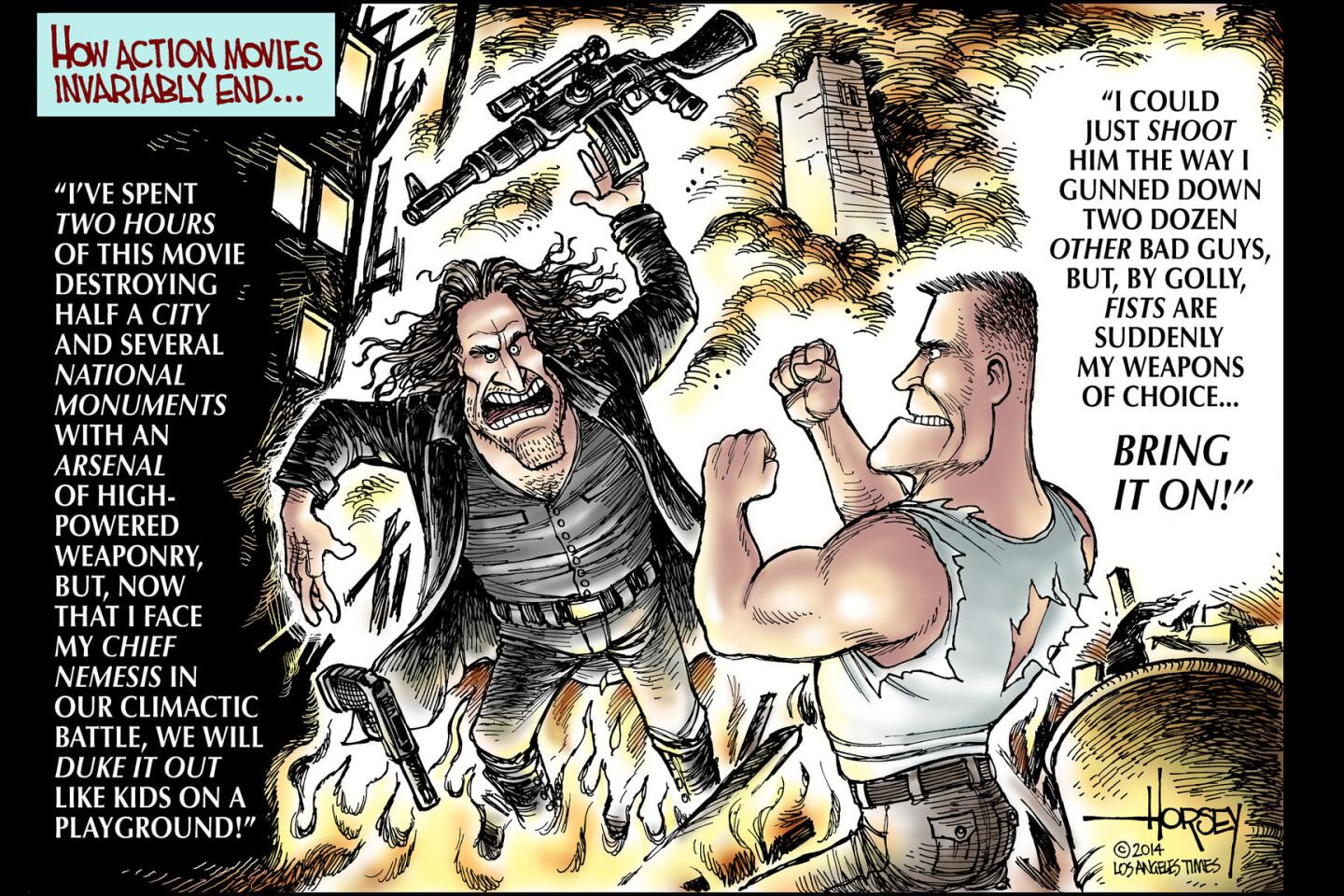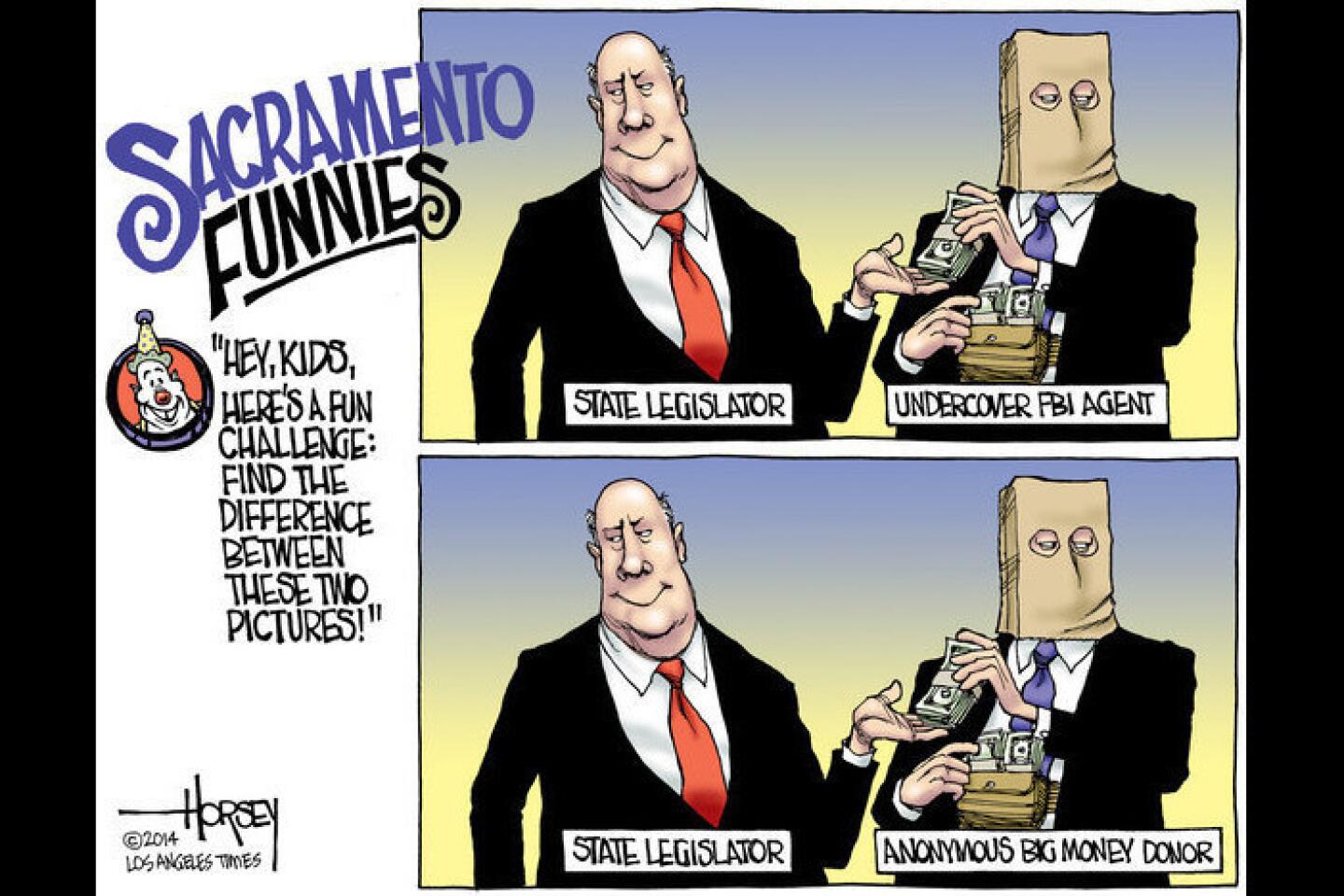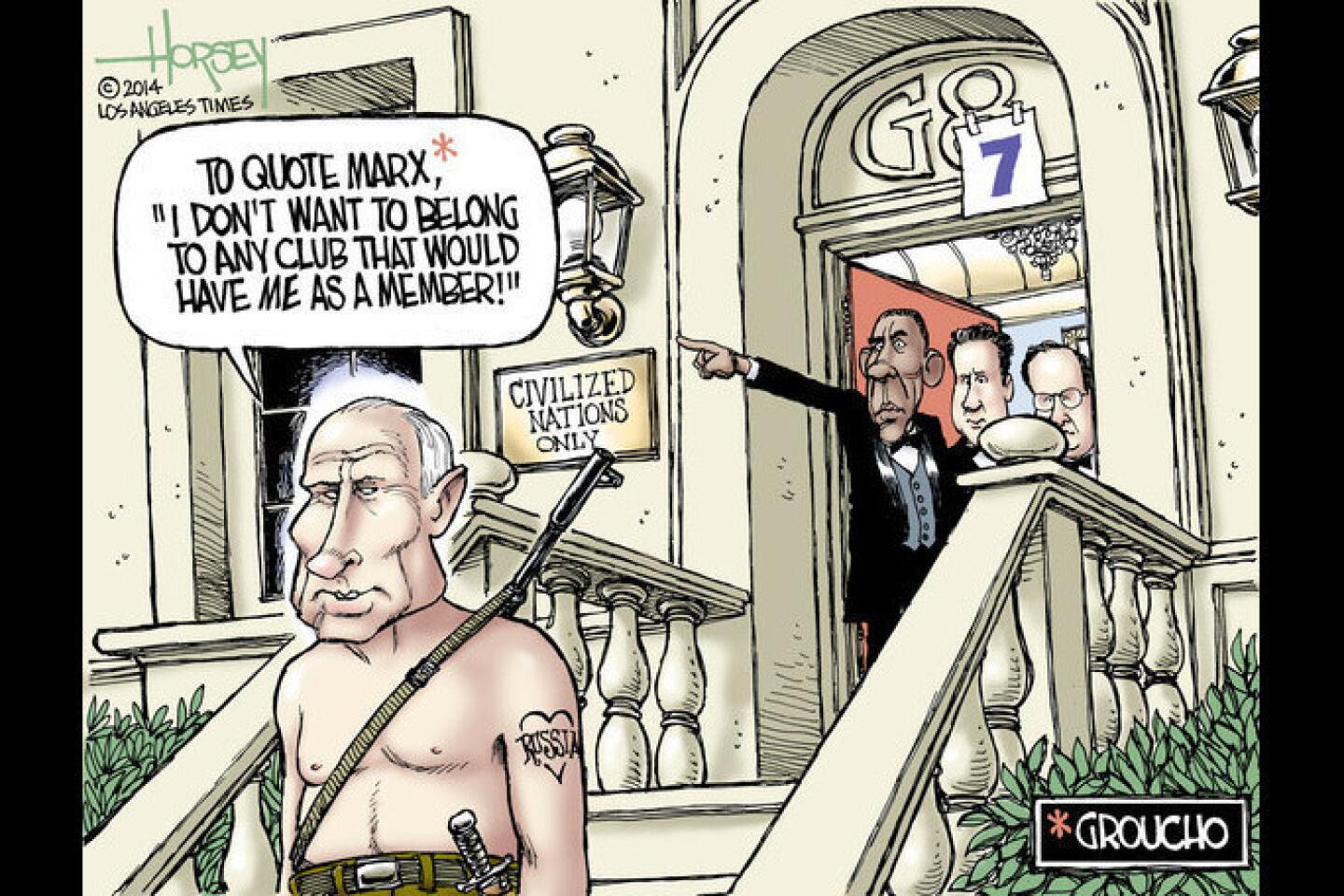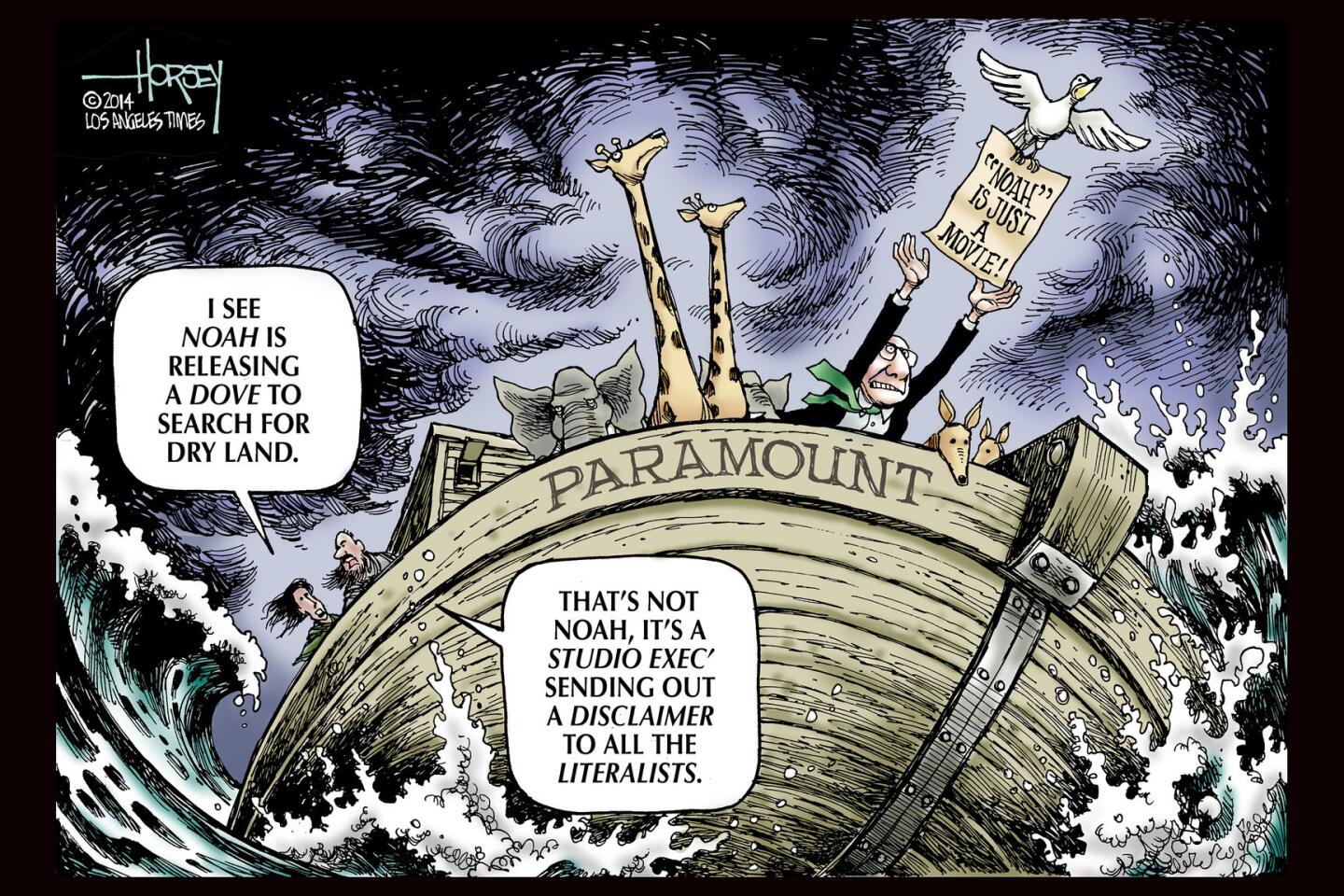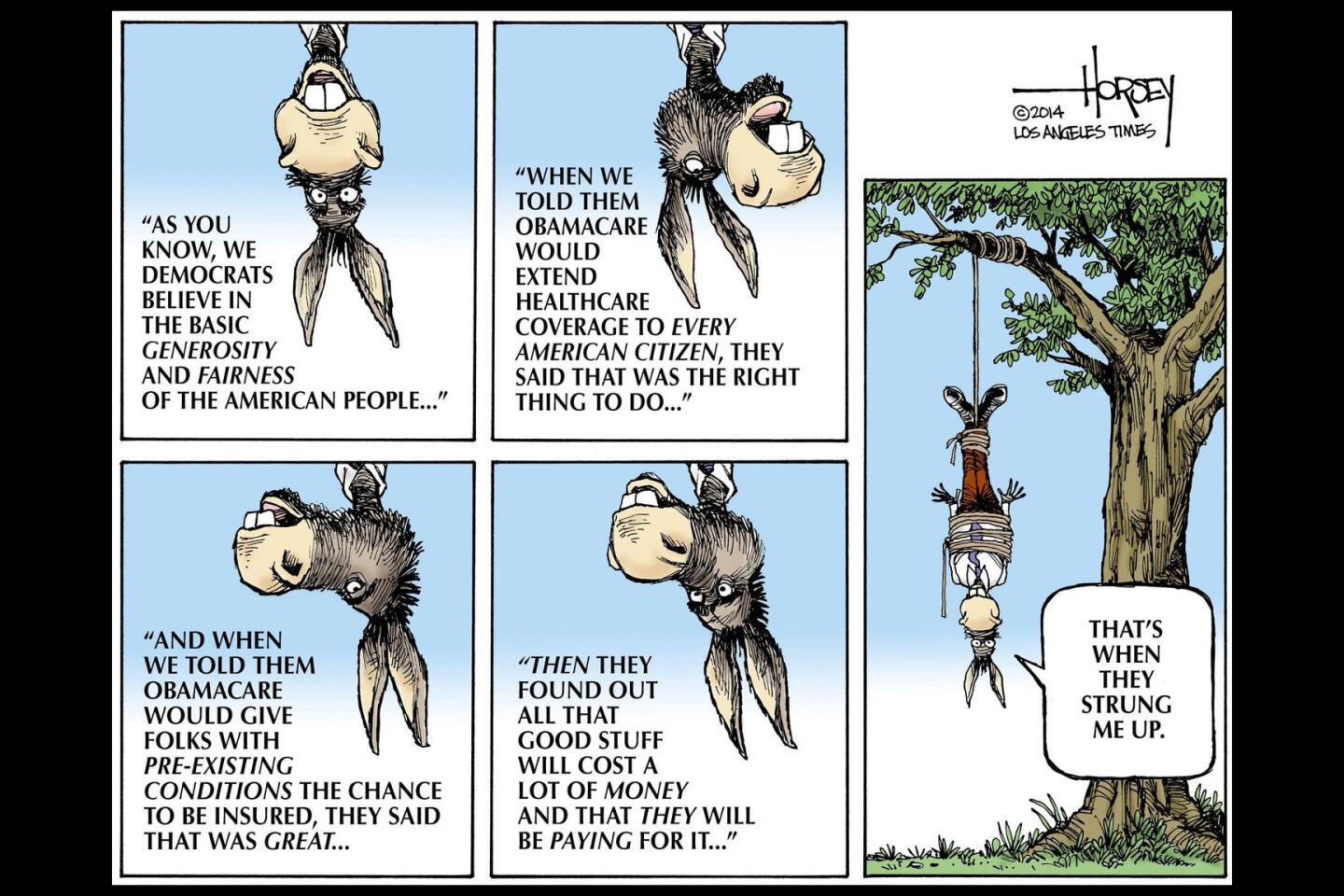Presidential race turns into a historic test of unpopularity
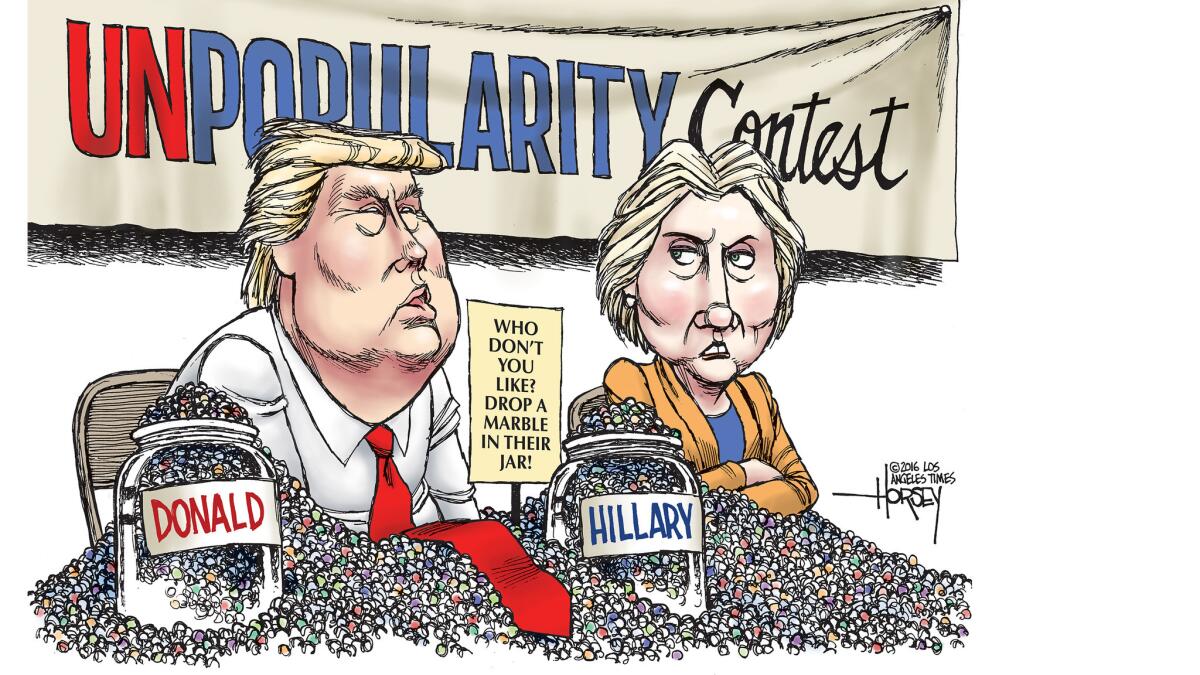
- Share via
The pretty young Latino woman wore a stars-and-stripes scarf tied around her forehead, barely holding her long, thick brown hair in check. Another length of star-spangled red, white and blue cloth was tied around her left bicep. Her tight blue jeans were purposely shredded in the popular style. A dark gray hoodie draped her hips. And her light gray T-shirt was printed with red, white and blue letters that read, “FEEL THE BERN.”
She told me her name was Alyssa Garcia and, with a serious single-lens reflex camera in hand — not a mere cellphone — she had come to shoot photos of Bernie Sanders at a rally in Pomona 10 days before the California primary. Garcia said she was a Bernie fan because of his plan to give free healthcare and college tuition to young people. Knowing the likely outcome of the race for the Democratic nomination, I had to ask her if she would vote for Hillary Clinton if Sanders were to fall short. I was especially interested because her demographic profile fairly well met the criteria of a dependable Democratic voter: young, female, non-white.
The vehemence of her answer surprised me. “She should not be able to run because she’s under investigation for a felony.”
At another rally the next day in Bakersfield, I heard much the same from many young voters: The investigation into Clinton’s misuse of an email server while she was secretary of State was a disqualifying demerit against her candidacy. Possibly the Justice Department’s recent ruling that there are insufficient grounds to warrant criminal charges will have changed some minds, even though FBI Director James Comey presented the findings with a searing condemnation of Clinton’s poor judgment in the matter. Still, the distaste lingers and could remain a problem for a candidate plagued with high “negative” numbers in polls.
Clinton is just lucky she is running against a man whose “negative” numbers are even higher.
As we steer into two weeks during which our two major political parties will meet in conventions to nominate their candidates for the presidency, the awkward question facing the country is how the insanely lengthy primary election season managed to leave us with a choice between the two most unpopular candidates in American political history. The numbers shift on a daily basis and poll to poll, but they continue to add up with discouraging results for Clinton and Donald Trump.
As the FiveThirtyEight blog said of voters in May, “These are people who don’t just like or dislike the candidates, they really like or dislike them. No past candidate comes close to Clinton, and especially Trump, in terms of engendering strong dislike a little more than six months before the election.”
Both Clinton and Trump are burdened by strongly negative public perceptions — whether accurate or not — that no amount of feel-good convention propaganda may be able to shake off. A study reported in this month’s Fortune magazine suggests that “both presidential candidates will suffer from their past bad acts no matter how much good they advertise in the present, and therefore face an uphill battle in trying to change their reputations with voters before November.”
The pivotal factor in this grand unpopularity contest could prove to be the intensity of feeling among those in both parties who actually like their candidates. Trump has a loyal following that has shown the ability to ignore or, in their own minds, refute every attack against their man. Clinton is adored by a unshakeable cadre of female voters who have stood by her through the years and whose longing to see a female president is as fervent as ever.
The conventions may give us a clue about which base of loyalists is more powerful. In Cleveland, will the sizable number of Republican elected officials and party operatives who are refusing to support the GOP nominee be forgotten amid the triumphant ecstasy of Trump’s angry outsiders? And when the Democrats gather in Philadelphia a week later, will the harsh judgments of young Bernie fans such as Alyssa Garcia be forgotten in a love fest for the first woman to be nominated for president by a major party?
Even in an unpopularity contest, there has to be a winner.
MORE TOP OF THE TICKET
Empathy is the path to healing between cops and black citizens
At a South Dakota rodeo, America’s political divisions feel like a passing storm
Bill Clinton spoils Hillary’s moment of liberation from Benghazi
More to Read
A cure for the common opinion
Get thought-provoking perspectives with our weekly newsletter.
You may occasionally receive promotional content from the Los Angeles Times.
